- Tips & advice

Speed awareness courses: format, prices and online options explained
Speed awareness courses are an alternative to a accepting speeding ticket. but what are they all about.

For those caught speeding in the UK there are usually two possible penalties: the first is the dreaded speeding ticket , which will entail a hefty fine and points on your license. This is usually the only option available for repeat offenders or those who have exceeded the speed limit by a considerable amount. The second option is to attend a speed awareness course. This is usually offered to first-time offenders and those who have only strayed ever so slightly over the limit.
Speed awareness courses aren’t exactly popular with a lot of drivers, with many considering them to be just another tax in disguise or simply a waste of time. However, many who have attended one of these educational sessions have been surprised by what they’ve learned, taking home benefits that have been genuinely useful out on the road. Plus, given the option, most people will jump at the chance of a speed awareness course to avoid getting points on their licence and moving a step closer to a potential ban.

If you decide to attend a speed awareness course instead of taking points and a fine, you’ll find that there are countless locations spread across the country. Online courses have also sprung up as a result of the Coronavirus pandemic, meaning that you can take a speed awareness course from the comfort of your own home via a video call, removing at least some of the inconvenience. Sessions typically last for four hours, and you do have to pay a fee to attend. The courses are run by not-for-profit companies, so the price can vary, but the price averages out at around £100.
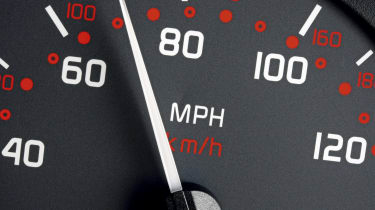
When you’re considering accepting a National Speed Awareness Course offer, remember that it’s not a test, so there’s no passing or failing. As long as you attend the entirety of the course, demonstrate a positive attitude towards speed awareness and an intention to utilise what you’ve learnt towards driving in a safer manner, then you should complete the course without issue.

How does a Speed Awareness Course work?
If you are offered the chance to attend a speed awareness course instead of getting points on your licence, you will generally have 14 days to respond to the letter of notification from the relevant police force, and either accept or decline the offer. Declining the offer will mean that you automatically revert to points and a fixed penalty fine – unless you are ordered to attend court instead.
Once you’ve accepted the offer, you can go online to book a course at one of the locations and times that the course provider offers. You can attend a course in any part of the country, meaning that you don’t need to return to the location of the offence. A local course provider can be found via the National Driver Offender Retraining Scheme’s official website .
Online courses have become the preferred method since the start of the coronavirus pandemic, over the more traditional, in-person delivery. You can book the course as normal, but you'll instead get an email containing details of how to join a virtual meeting. You're not allowed to have anyone else in the same room as you while taking the course, and nor are you not permitted to take pictures or record the material. Any interference could result in your online speed awareness course ending without a chance of rescheduling.
What is the format of a Speed Awareness Course?
Wherever you go to attend your course, and irrespective of the course provider you choose, the format of the course should be roughly the same. If you're undertaking a face-to-face meeting you’ll be sitting informally in a room with – typically - a couple of dozen other offenders. An instructor at the front of the room will use visual aids and video to help get the message across in a discussion-based format. A virtual course will usually consist of the same material and you may be joined by other offenders in a group setting.
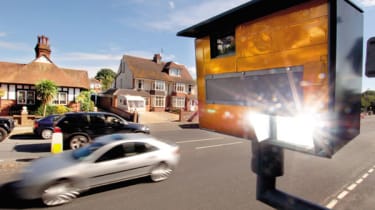
Speed Awareness Course topics
Regardless of the delivery style or course location, you will discuss and learn about these speed-awareness topics:
- The benefits of speed limits
- Attitudes around speeding
- Consequences of speeding
- Driver skill and knowledge
- Driver responsibility
- The difference your speed makes
- Impact of speeding on other drivers
The insurance implications
There is evidence that insurance companies have hiked premiums for drivers who have accepted offers to attend speed awareness courses but, of course, the same happens for drivers who have points on their licences too. You must inform your insurance company if you attend a course – but only if you are asked.
Have you ever been on a Speed Awareness Course? Tell us what you thought of it in the comments section below...
Chris covers all aspects of motoring life for Auto Express. Over a long career he has contributed news and car reviews to brands such as Autocar, WhatCar?, PistonHeads, Goodwood and The Motor Trader.
Most Popular

‘Dacia Zen’ seven-year warranty brings added peace of mind

Car Deal of the Day: Mercedes EQC offers luxury EV motoring for £327 a month

New Nissan Qashqai gets angry, as best-selling family SUV receives aggressive facelift
What Is a Speed Awareness Course? (And What to Expect From One)
Posted on March 13th, 2023 by Eve McPherson
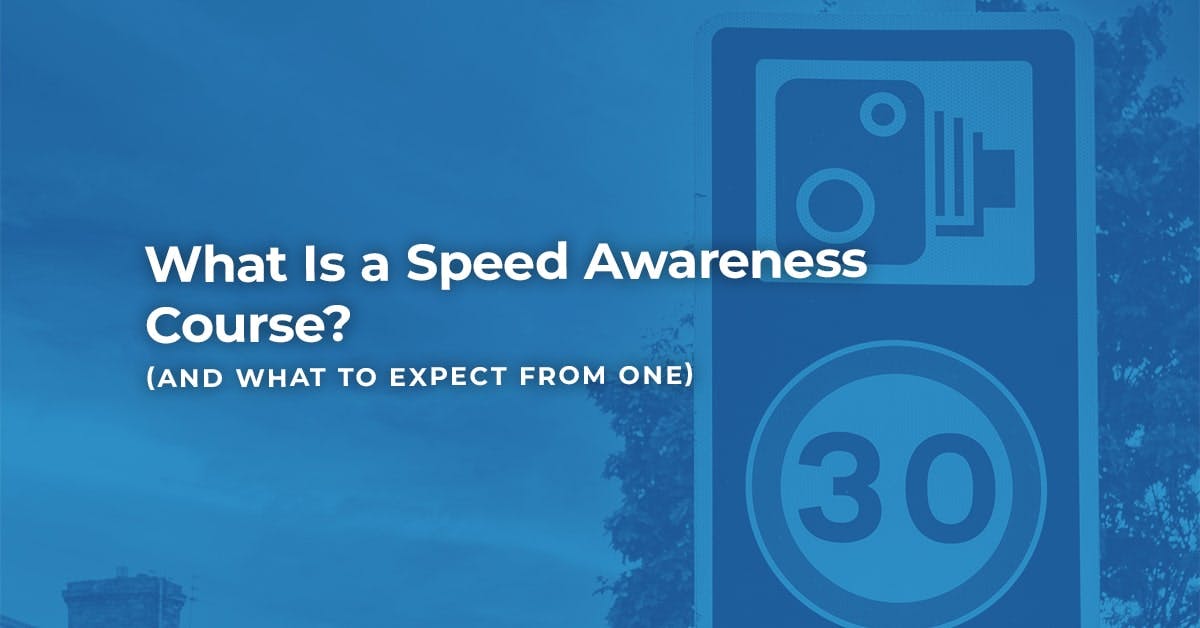
Did you know that the minimum penalty for speeding in the UK is a £100 fine and 3 penalty points on your licence? If you are found to have driven above the speed limit, then you could also be asked to participate in a speed awareness course.
A speed awareness course is a policing initiative designed to clamp down on speeding in the UK. If you have broken the speed limit, then a speed awareness course can help you improve your safety skills.
In a recent survey, the RAC found that the number of people admitting to exceeding the speed limit on country roads, motorways and high-speed dual carriageways has increased significantly.
That’s why speed awareness courses are so important, with 1.39 million drivers in the UK attending a speed awareness course in 2021.
If you want to find out whether you are eligible for one of these courses, what to expect from an speed awareness course, or how much a speed awareness course costs, then this is the article for you.
Page Contents
What Is a Speed Awareness Course?
What can i expect from a speed awareness course, how can i demonstrate improvement, how long is a speed awareness course, can i fail the course, what happens during an online speed awareness course, how much is a speed awareness course, will i be offered a speed awareness course, do i have to attend a speed awareness course, how do i book the course.
In the UK, the National Driver Offender Retraining Scheme (NDORS) gives a motorist caught committing a ‘low level’ traffic offence the chance to attend a re-education course.
A speed awareness course is a retraining course designed to help such an individual comply with Road Traffic Legislation. Each session is led by an instructor, who will instigate honest discussions about safe driving.
Originally introduced in 1996, most importantly, a speed awareness course is a theory test refresher . As such, many UK drivers may never have learned the content before passing their driving test.
The course is designed for low-end speeders - specifically people that the police believe would benefit from learning about the impact their speeding has on others on the road.
On a speed awareness course, you will discuss:
- The Highway Code
- Braking distances
- Other best driving practices
There are plenty of UK speed awareness course providers which you can book with, including DriveTech , UKROEd and the TTC Group .

During a speed awareness course, you could be asked to discuss personal experiences, or spot hazards on a dashcam journey. The course could cover speeding on built-up areas or motorways, as well as single- and dual- carriageways.
In addition, you will likely learn:
- How to identify speed limits
- The dangers of speeding
- How to avoid speeding
Be aware that you could be shown graphic images of high-speed crashes, which could be upsetting to look at. As you can probably imagine, these images are included to deter drivers from speeding in the future.
A speed awareness course is less severe than a speeding fine, but you do still have to demonstrate a certain degree of progress. If you fail to do so, then your instructor can refer your case back to the police. This can result in a fine and extra penalty points on your licence.
By the end of the course, you should be able to demonstrate what you have learned in terms of:
- The consequences of speeding
- Personal responsibility on the roads
- The impact of your behaviour on others
- Knowledge and skills surrounding the Highway Code
If your instructor feels that you have positively changed your attitude towards speeding and made a significant amount of progress in these areas, then they will tell the police to drop the speeding charge.
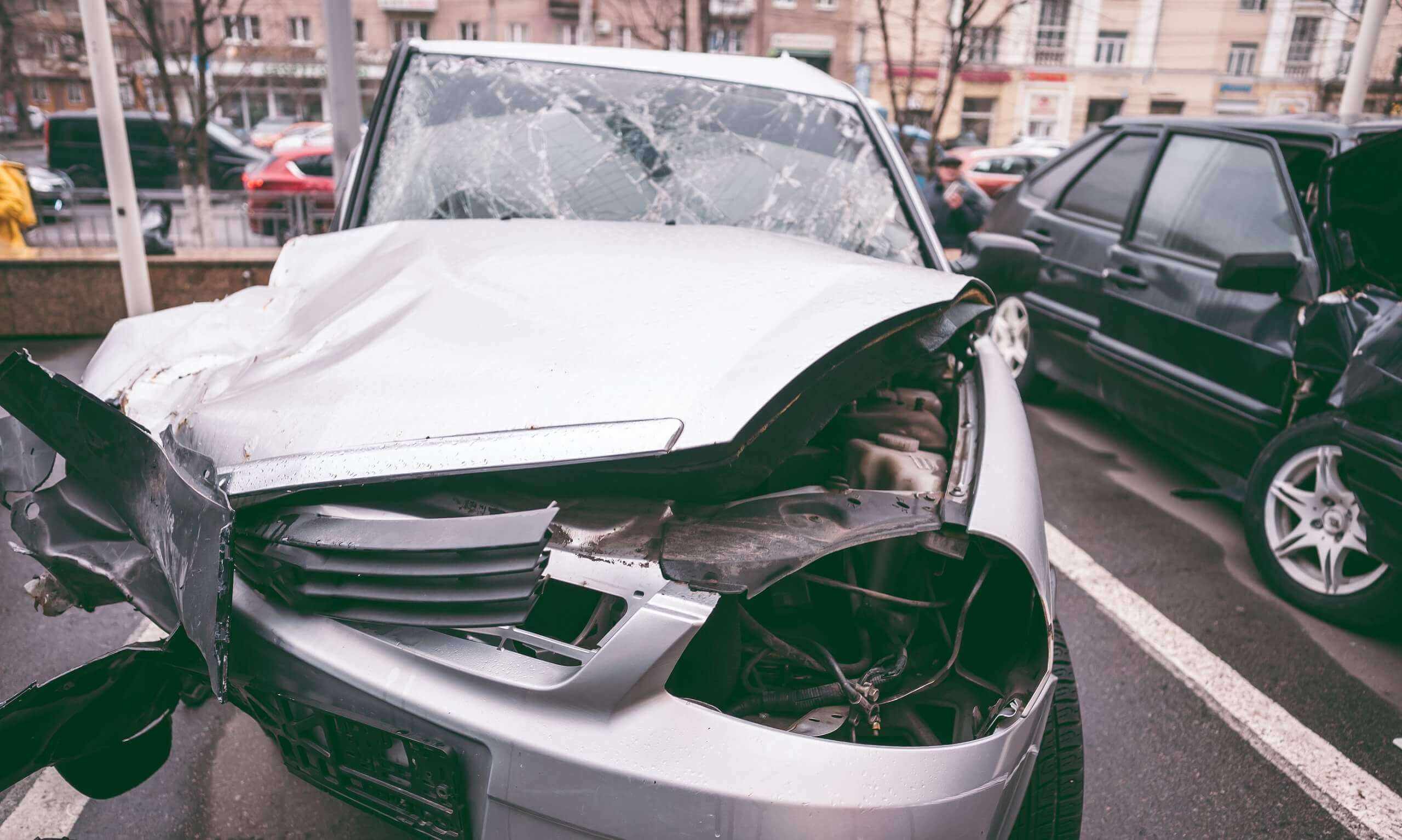
An in-person speed awareness course will take between 4 and 5 hours , with a break in the middle.
Courses are available during the day, evening and at weekends. Just remember that food will not be provided, so you will need to bring your own if you would like to eat something during the break.
Crucially, a speed awareness course does not have a test, so you can neither pass nor fail the course.
However, you must make sure that you attend the sessions promptly and complete all necessary paperwork. You should also come prepared to contribute during the session discussion.
As with in-person classes, an online speed awareness course will not require that you take a test. However, you will still need to attend the classes, engage in the discussion and be willing to contribute throughout the course.
An online speed awareness course will usually have around 9 participants per course. You can expect to learn the same content as you would in the in-person sessions.
A virtual speed awareness course is usually 2 hours and 30 minutes long, with a 10 minute break. You will be sent a link and instructions on how to join the session ahead of the class. You will need a stable internet connection and a built-in camera or webcam to attend.
A speed awareness course can cost roughly £100 , though each police force will set their own price.
Your eligibility letter will include the exact price - you may also find the cost of speed awareness courses near you on your local police force’s website.
Remember, the cost of the speed awareness course takes into account more than money. Whilst a fine is comparable to the cost of a speed awareness course, know that any speeding offence will add 3 penalty points to your licence.
Once you have 12 penalty points on your licence , then you will face disqualification . If you have been driving for less than 2 years , then you should know that just 6 points equals a disqualification .
The course may be a better option for you, as you will avoid getting penalty points on your licence, which could in turn cause an increase in your car insurance premium. Not to mention that the course can help you to become a safer driver.
How Much Is a Speeding Fine?
In April 2017, the structure of speeding fines changed. While the standard Fixed Penalty Notice is still a £100 fine and 3 penalty points, there are now more severe penalties for serious offences or repeat offenders.
You can be summoned to a magistrates court and, if found guilty, forced to pay a larger fine. This equates to a percentage of your weekly wage and increases with the severity of your offence.
The maximum UK speeding fine is £1,000 . In 2021, that increased to £2,500 for motorway speeding.
Magistrates have 25% leeway for imposing fines. This means mitigating circumstances might reduce your fine to 25% - but you could also end up paying 175% in Band C!
A speed awareness course may be offered to you instead of a penalty in the event that:
- You are caught speeding up to 10% above the limit
- You haven’t completed a speed awareness course in the last three years
You may be eligible to attend a speed awareness course if you meet this criteria, but you should know that the course is not compulsory.
Your local police department may choose not to offer you the course - you may instead have to pay a fine and incur the points on your licence. You may not be eligible for a speed awareness course if:
- You are too far over the speeding limit
- You’ve attended another speed awareness course in the last 3 years
- Your local police force does not offer speed awareness courses
If you are eligible for a speed awareness course, your Notice of Intended Prosecution (the document informing you of a speeding offence) will give you the options, and all of the relevant information.
You must fill out the form within the allocated time limit to inform the police, if you intend to accept the offer. This will halt the prosecution charges until after your speed awareness course.
Your eligibility depends on you being caught between the following speeds:
Remember, even 1mph over the limit breaks the law - don't take the risk.
A speed awareness course is not compulsory. If you have been offered a speed awareness course, you can choose to do one of the following:
- Book and attend the speed awareness course
- Accept the fixed penalty, paying a fine and incurring points on your licence
- Appeal the offence and attend a court hearing
You will receive a letter from the police within 14 days of being caught speeding, which can tell you what your options are.
You can book a speed awareness course through all main providers - either online or over the phone. In order to book a speed awareness course, you will need:
- Your police reference number and PIN - you can find this on your police course offer letter
- Your debit/credit card in order to pay
Select a date and time that suits you, and pay the relevant fee. Once your speed awareness course is booked, make sure that you arrive on time and bring some form of photo ID - such as your passport or driving licence - with you to prove your identity.
You will need to provide 2 forms of ID. If you do not do so, or otherwise turn up late or leave before the course finishes, then you can be excluded from the session. The centre will then refer your case back to the police.
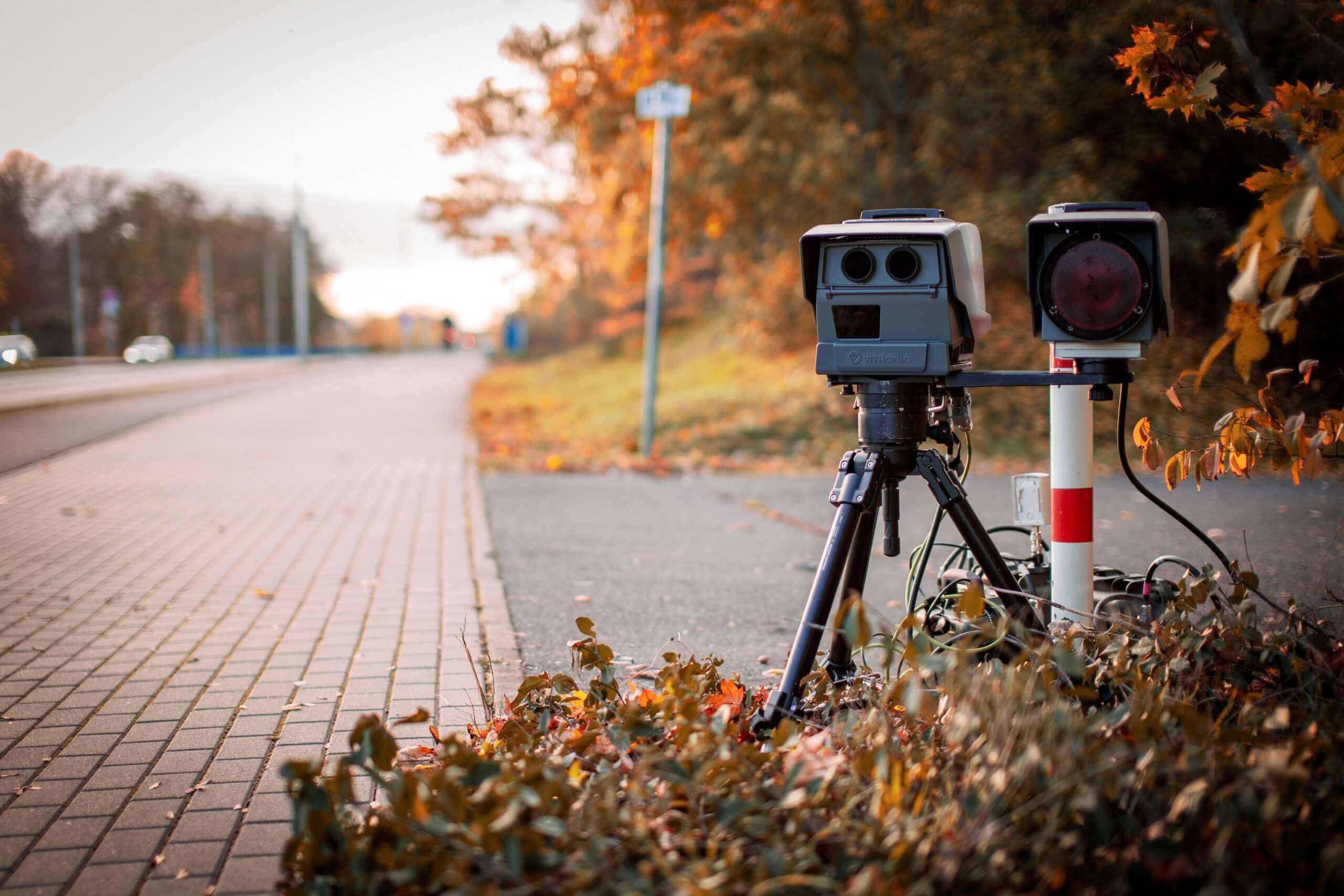
How Many People Attend Each Session?
What happens if i don’t attend a session, how many speed awareness courses can i do, do you have to declare a speed awareness course to your insurance provider.
Now that you have finished reading this article, you should know a lot more about attending a speed awareness course in the UK.
We hope that you have enjoyed reading this article, and are inspired to take further care to become a better driver and drive safely .

EVE MCPHERSON
Eve is a Content Writer for BookMyGarage, who works alongside industry experts to create trustworthy, well-researched content. With experience in blog writing, social media, and copywriting, her work has been featured in various online publications, such as Homeworker Hub & No Extra Source.
Comments ( 39 )
Lifestyle Driving Law New Drivers Advice
BookMyGarage Blog
Up-to-date motoring news, guides and information. With a variety of categories including news and motoring, we’ll help you out with driving safely, caring for your car and preparing for your MOT test.
Compare MOT, service & repair deals near you

Search posts
Sign up to our newsletter.
Get monthly up-to-date news, guides and information straight to your inbox!

Follow BookMyGarage
- Part exchange
- Archived cars
- Archived listings
- Report a purchase
- Communication preferences
- Browse in-stock new & used cars
- Browse leasing deals
- Sell your car
- New car reviews
- Car reviews
- Aston Martin
- Audi electric cars
- Audi hybrid cars
- BMW electric cars
- BMW hybrid cars
- Citroen electric cars
- Ford hybrid cars
- Honda hybrid cars
- Hyundai electric cars
- Hyundai hybrid cars
- Hyundai SUVs
- Jaguar SUVs
- Kia electric cars
- Kia hybrid cars
- Lamborghini
- Lexus electric cars
- Lexus hybrid cars
- Mazda hybrid cars
- Mercedes-Benz
- Mercedes-Benz electric cars
- Mercedes-Benz hybrid cars
- Mercedes-Benz SUVs
- MG electric cars
- MINI electric cars
- Nissan electric cars
- Peugeot electric cars
- Peugeot hybrid cars
- Porsche electric cars
- Porsche SUVs
- Renault electric cars
- Renault SUVs
- Rolls-Royce
- Skoda electric cars
- Smart electric cars
- Toyota hybrid cars
- Toyota SUVs
- Vauxhall electric cars
- Vauxhall hybrid cars
- Vauxhall SUVs
- Volkswagen electric cars
- Volkswagen hybrid cars
- Volkswagen SUVs
- Volvo electric cars
Not sure what you want? Find your perfect car with our Car chooser
- 7-Seater Cars
- Automatic Cars
- Convertible Cars
- Crossover Cars
- Electric Cars
- Estate Cars
- Executive Cars
- Family Cars
- Hot Hatches
- Hybrid Cars
- Luxury Cars
- Medium-sized Cars
- Most Economical Cars
- Motability Cars
- Saloon Cars
- Sports Cars
- Audi A1 Sportback
- BMW 1 Series
- Cupra Formentor
- Ford Fiesta
- Honda Civic
- Hyundai Ioniq 5
- Hyundai Tucson
- Hyundai i10
- Kia Sportage
- Land Rover Defender
- Mercedes-Benz A-Class
- Nissan Juke
- Nissan Qashqai
- Peugeot 2008
- Peugeot 208
- Peugeot 3008
- Range Rover
- Range Rover Evoque
- Skoda Karoq
- Tesla Model 3
- Tesla Model Y
- Toyota Aygo X
- Toyota Yaris Hybrid
- Vauxhall Corsa
- Vauxhall Mokka
- Volkswagen Golf
- Volkswagen Polo
- Volkswagen Tiguan
- Nearly new cars
- Car chooser
- Compare cars side-by-side
- New car delivery times
- Fuel chooser
- PCP calculator
- How we test cars
- Used Abarth cars
- Used Alfa Romeo cars
- Used Alpine cars
- Used Aston Martin cars
- Used Audi cars
- Used Bentley cars
- Used BMW cars
- Used Citroen cars
- Used Cupra cars
- Used Dacia cars
- Used DS cars
- Used Ferrari cars
- Used Fiat cars
- Used Ford cars
- Used Genesis cars
- Used GWM Ora cars
- Used Honda cars
- Used Hyundai cars
- Used Infiniti cars
- Used Jaguar cars
- Used Jeep cars
- Used Kia cars
- Used Lamborghini cars
- Used Land Rover cars
- Used Lexus cars
- Used Lotus cars
- Used Maserati cars
- Used Mazda cars
- Used McLaren cars
- Used Mercedes-Benz cars
- Used MG cars
- Used MINI cars
- Used Mitsubishi cars
- Used Nissan cars
- Used Peugeot cars
- Used Polestar cars
- Used Porsche cars
- Used Renault cars
- Used Rolls-Royce cars
- Used SEAT cars
- Used Skoda cars
- Used Smart cars
- Used SsangYong cars
- Used Subaru cars
- Used Suzuki cars
- Used Tesla cars
- Used Toyota cars
- Used Vauxhall cars
- Used Volkswagen cars
- Used Volvo cars
- Used Peugeot 108
- Used Kia Picanto
- Used Citroen C3
- Used Volkswagen Polo
- Used Ford Fiesta
- Used Renault Clio
- Used MINI 3-Door Hatch
- Used SEAT Arona
- Used Ford Fiesta Active
- Used MINI Paceman
- Used Vauxhall Mokka
- Used Fiat 124 Spider
- Used Honda Jazz
- Used Skoda Karoq
- Used Toyota Yaris Hybrid
- Used Volkswagen Golf
- Used BMW 2 Series (2014-2021)
- Used Toyota Corolla
- Used Nissan Qashqai
- Used Lexus UX
- Used Range Rover Evoque
- Used Discovery Sport
- Used Audi A4 Avant
- Used Mercedes-Benz GLA
- Used Mercedes-Benz C-Class Saloon
- Used Toyota RAV4 Hybrid
- Used Audi Q5
- Used BMW X3
- Used Jaguar F-PACE
- Used Volvo XC90
- Used Mercedes-Benz GLC
- Used cars in Aberdeen
- Used cars in Birmingham
- Used cars in Bristol
- Used cars in Cardiff
- Used cars in Doncaster
- Used cars in Dundee
- Used cars in Edinburgh
- Used cars in Glasgow
- Used cars in Leeds
- Used cars in Leicester
- Used cars in Lincoln
- Used cars in Liverpool
- Used cars in London
- Used cars in Manchester
- Used cars in Milton Keynes
- Used cars in Newport
- Used cars in Northampton
- Used cars in Norwich
- Used cars in Nottingham
- Used cars in Plymouth
- Used cars in Sheffield
- Used cars in Southampton
- Used cars in Stoke-on-Trent
- Used cars in Swansea
- Car history checker
- Car leasing
- Business car leasing
- Abarth lease deals
- Alfa Romeo lease deals
- Audi lease deals
- BMW lease deals
- BYD lease deals
- Citroen lease deals
- Cupra lease deals
- Dacia lease deals
- DS lease deals
- Fiat lease deals
- Ford lease deals
- Genesis lease deals
- GWM Ora lease deals
- Honda lease deals
- Hyundai lease deals
- Jaguar lease deals
- Jeep lease deals
- Kia lease deals
- Land Rover lease deals
- Lexus lease deals
- Maserati lease deals
- Mazda lease deals
- Mercedes-Benz lease deals
- MG lease deals
- MINI lease deals
- Nissan lease deals
- Peugeot lease deals
- Polestar lease deals
- Porsche lease deals
- Renault lease deals
- SEAT lease deals
- Skoda lease deals
- Smart lease deals
- Subaru lease deals
- Suzuki lease deals
- Tesla lease deals
- Toyota lease deals
- Vauxhall lease deals
- Volkswagen lease deals
- Volvo lease deals
- 7-seater car lease deals
- Electric car lease deals
- Estate car lease deals
- Hybrid car lease deals
- Small car lease deals
- SUV lease deals
- Ford Fiesta lease deals
- Vauxhall Corsa lease deals
- Volkswagen Polo lease deals
- Nissan Juke lease deals
- Audi A1 Sportback lease deals
- Skoda Kamiq lease deals
- Peugeot 2008 lease deals
- Ford Puma lease deals
- Volkswagen Golf lease deals
- Nissan Qashqai lease deals
- Ford Focus lease deals
- Audi A3 Sportback lease deals
- Volkswagen T-Roc lease deals
- Kia Sportage lease deals
- BMW 1 Series lease deals
- BMW 2 Series Gran Coupe lease deals
- Mercedes-Benz A-Class lease deals
- Toyota C-HR lease deals
- Hyundai Tucson lease deals
- Ford Kuga lease deals
- Mercedes-Benz A-Class Saloon lease deals
- Volkswagen Tiguan lease deals
- Volkswagen ID3 lease deals
- Volvo XC40 lease deals
- Mercedes-Benz GLB lease deals
- Volkswagen Golf GTI lease deals
- Tesla Model 3 lease deals
- BMW 3 Series lease deals
- Volkswagen Golf R lease deals
- Range Rover Evoque lease deals
- Jaguar F-PACE lease deals
- Range Rover Velar lease deals
- Discovery lease deals
- Audi Q7 lease deals
- Range Rover Sport lease deals
- New car deals
- Abarth Deals
- Alfa Romeo Deals
- Alpine Deals
- Citroen Deals
- Cupra Deals
- Dacia Deals
- Genesis Deals
- GWM Ora Deals
- Honda Deals
- Hyundai Deals
- INEOS Deals
- Jaguar Deals
- KGM Motors Deals
- Land Rover Deals
- Lexus Deals
- Lotus Deals
- Mazda Deals
- Mercedes-Benz Deals
- Nissan Deals
- Peugeot Deals
- Polestar Deals
- Renault Deals
- Skoda Deals
- Smart Deals
- Subaru Deals
- Suzuki Deals
- Tesla Deals
- Toyota Deals
- Vauxhall Deals
- Volkswagen Deals
- Volvo Deals
- Dacia Sandero Deals
- Dacia Duster (2017-2024) Deals
- Vauxhall Corsa Deals
- Volkswagen Polo Deals
- Peugeot 2008 Deals
- Ford Puma Deals
- Volkswagen Golf Deals
- Nissan Qashqai Deals
- Nissan Leaf Deals
- Kia Sportage Deals
- MINI Cooper Electric Deals
- Mercedes-Benz A-Class Deals
- Hyundai Tucson Deals
- Ford Kuga Deals
- Volkswagen Tiguan Deals
- Peugeot 3008 Deals
- Cupra Formentor Deals
- Skoda Kodiaq Deals
- Volvo XC40 Deals
- Vauxhall Mokka Electric Deals
- Tesla Model 3 Deals
- Volkswagen ID4 Deals
- Hyundai Ioniq 5 Deals
- Range Rover Evoque Deals
- Kia Sorento Deals
- Volvo XC60 Deals
- Volvo XC90 Deals
- BMW M2 Deals
- Jaguar F-PACE Deals
- 0% car finance deals
- No deposit car finance deals
- Cars with cheap insurance deals
- Immediate delivery deals
- Quick delivery EV deals
- Sell my car
- Part exchange my car
- Value my car
- Sell my van
- Electric cars
- Best electric cars
- Cheap electric cars
- Most efficient electric cars
- Longest range electric cars
- Electric family cars
- Electric SUVs
- Fastest electric cars
- Small electric cars
- Used electric cars
- Audi Q4 e-tron
- Ford Mustang Mach-E
- Hyundai Kona Electric
- Jaguar I-PACE
- Kia Niro EV
- Lotus Eletre
- Nissan Ariya
- Peugeot e-208
- Skoda Enyaq
- Toyota bZ4X
- Carwow electric
- Compare electric car costs
- EV charging stations map
- Electric car statistics
- Tesla charging stations map
- Automotive news
- carwow newsroom
- Going electric
- Choosing a car
- Buying a car
- Financing a car
- Owning & running a car
- Selling a car
- Grants & discounts
- Driving rules and laws
- Automotive glossary
- YouTube and videos
- Miscellaneous automotive topics
- Congestion charge checker
- Fuel price checker
- MOT history checker
- ULEZ checker
- Clean air zone checker
- Vehicle Tax checker
Speed awareness courses: everything you need to know
July 21, 2022 by carwow staff
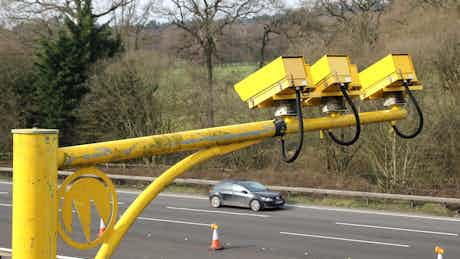
Speed awareness courses can be an alternative to penalty points and a fine; our guide has all the details
In 2021, 87% of cars travelling in 20mph zones exceeded the limit; in 30mph zones, 51% of cars broke the limit; and on motorways the figure was 48%.
Given those figures, it’s little surprise that around 2.7 million people are caught speeding each year, and a similar number of drivers have three or more penalty points in their licence.
But if you are caught speeding, you may not have to have penalty points on your licence – you may be offered a speed awareness course instead. This guide explains what criteria you will need to meet to be eligible for a speed awareness course, and what you can expect if you attend one.
What is a speed awareness course?
Rather than threaten speeding motorists with penalty points and a fine and hoping this dissuades them from breaking the limit, speed awareness courses are run with the intention of educating drivers about the dangers posed by speeding.
If you have been caught speeding and were not pulled over by police at the time, you will receive a Notice of Intended Prosecution (NIP) and a ‘Section 172 notice’ in the post. These will be addressed to the registered keeper of the vehicle that was speeding, asking if they or someone else was driving the car at the time of the offence.
Assuming the person was you, once you return the Section 172 notice (the name relates to the part of the Road Traffic Act that requires you to identify the driver), one of three possible things will happen:
- You will receive a fixed penalty notice (typically three points and a fine)
- You will receive a letter telling you to go to court (this if for serious speeding offences, or if you already have several points on your licence)
- You will be offered a speed awareness course
Speed awareness course eligibility
In order to be offered a speed awareness course the police force that caught you speeding must be signed up to the programme, while the courses are intended for people caught committing low-end speeding offences.
Note that if you have completed a speed awareness course within the previous three years, you will not be eligible to take another one, and will automatically receive points instead.
There are criteria for how much over the limit you were going in order for you to be eligible for a speed awareness course:
If you’re wondering why the eligibility for a speed awareness course doesn’t start at just 1mph over the speed limit, that’s linked to the fact that guidance from the The Association of Chief Police Officers advises police to penalise drivers travelling 10+ 2mph over the speed limit and above (EG 79mph on a motorway). This 10% +2mph paradigm is only guidance, though: police are able to use their discretion and judgement when deciding what thresholds to use when setting speed cameras, and what individual officers should do when they catch someone driving.
What happens at a speed awareness course?
Speed awareness courses typically run for four hours in person (with a break in the middle) or for two and a half hours or so online. The coronavirus pandemic pushed courses online, and while face-to-face ones have started to reappear, online courses are still popular.
Courses are run by external facilitators rather than the police themselves. Evening and weekend appointments are typically offered, so you may not need to book time off work.
Courses are typically run with up to 24 drivers if they are in-person, or up to nine drivers if they are online. Participants will typically begin the course by being prompted by two trainers tol share their experiences of being caught.
Speed awareness courses are purely theory based, so there is no driving involved. Trainers will typically cover topics such as the effect speed has on stopping distances, how to prevent yourself from unintentionally creeping above the limit (IE by using cruise control or a speed limiter), and tactics to ensure you have enough time to complete your journeys without feeling the need to rush.
The courses do not have a pass/fail test (though there may be informal quizzes), but you will be expected to contribute positively and engage with the course. If it is deemed you are uncooperative or disruptive the course administrator may contact the police force and tell them about this, which will lead to you receiving the penalty points and a fine you would otherwise have been due.
Anecdotally, some drivers say they were worried that they will be lectured, harangued or patronised in a speed awareness course, but ended up finding them more interesting, engaging and thought provoking than they imagined.
Speed awareness course cost
The cost of speed awareness courses varies based on both which police force caught you speeding, and what course provider they use. Prices range from roughly £75 to £100, with £90 being typical.
Speed awareness course locations
In-person courses were offered up and down the country, while online courses can be completed from the comfort of your own home. You’ll need a room where you can concentrate undisturbed, plus a decent wi-fi connection and a laptop or desktop computer with a webcam.
How to book a speed awareness course
If you receive the offer of a speed awareness course instructions for how to book a place will be included with the offer. Places can typically be booked online or over the phone.
Speed awareness course FAQs
How long is a speed awareness course.
Courses typically last between 4.5 and 2.5 hours, with a break in-between, and in-person courses generally taking longer than online ones.
How often can you do a speed awareness course?
No more than once every three years. If you have already taken a course within this timeframe and are caught speeding again, you will not be offered another course.
Are speed awareness courses still online?
Yes. Although coronavirus restrictions have generally been lifted, the convenience of online courses has seen most remain online.
Does a speed awareness course count as a conviction?
No – the appeal of speed awareness courses is that they avoid a motoring conviction and penalty points.
Can you fail a speed awareness course?
Not as such, but if you fail to engage with the course or do not complete elements of it, the course providers may inform the police, who are likely to issue you the fine and penalty points you would otherwise have received. If this happens, you are unlikely to receive a refund on the course fee.
Do you have to declare a speed awareness course to your car insurer?
This is something of a grey area. Many insurers and price-comparison websites do not ask if you have attended a speed awareness course, but if you are asked you must declare that you have, or risk your policy being invalidated. Check with your insurance company to find out if an existing policy requires speed awareness courses to be declared if you are unsure.
Why was I not offered a speed awareness course?
This will be for one of three reasons: 1. The amount you broke the speed limit by did not fall within the criteria required for a course. 2. The police force that caught you speeding does not offer speed awareness courses. 3. You have previously taken a course within the past three years.
Looking for an easy way to change your car ? Then carwow is the place to go. You can sell your old car for a great price, and get the best deals on a new one . All through our network of trusted dealers and all from the comfort of your home. Tap the button below to get started today.
Compare cars using Carwow
- Compare cars using Carwow.
- View offers from local and national dealers.
- Buy with confidence on Carwow.

Related articles
Price reductions on selected cars , from £250 - £1000 off
- Ask the experts
- Attending a speed awareness course
Things you should know before attending a Speed Awareness Course
Attending a Speed Awareness Course can help you avoid points on your license - but what can you expect?
)
In 2022, about 1.64 million drivers attended a National Speed Awareness Course (NSAC) in the UK, registering a 113% increase since 2011.
After being caught exceeding the speed limit, motorists might be offered a speed awareness course as an alternative to penalty points, making it an appealing option for those who want to keep their driving licence clean. In fact, on top of a minimum fine of £100, speeding offences can cost you at least three points on your licence.
Drivers have the option of attending an NSAC only if they’ve not been on one in the past three years. But, if it’s your first time attending, what can you expect from the session?
)
What is a speed awareness course? Speed awareness courses exist to encourage safer driving and aim to re-educate those who have broken the speed limit and put others at risk. Courses encourage honest dialogue, discussing how you and other drivers can make UK roads safer to travel on and limit the risk of speeding again in the future.
The programme is considered an education course that allows drivers to refresh their safety skills after committing a driving offence. Surprisingly, the course did not exist until 1996, and many had not had the opportunity to learn the content included before passing their driving test.
From The Highway Code to road signs, from stopping distances to other best driving practices, speed awareness courses are a helpful tool that Drivetech is proud to provide.
What to expect from a speed awareness course
While most will not look forward to attending a speed awareness course, the vast majority of delegates ultimately provide very positive feedback about the courses, their delivery and positive outcomes.
Delegates, however, must recognise that it is this is part of a judicial process and course attendance must be taken seriously. If you do not participate or engage during the re-education programme, the instructor has the right to send your case back to the police to handle – resulting in other forms of punishment such as penalty points.
From October to December 2021, 42% of cars in free-flowing conditions exceeded the speed limit on motorways. On single carriageways with a speed limit of 60mph, 9% exceeded the speed limit, while on 30mph roads, 50% exceeded the speed limit.
Due to such dangerous driving on slower roads, the programme focuses heavily on speeding in built-up areas. It makes sure to cover motorways and single/dual carriageway speeding too. With numerous methods included to impact drivers, some involving graphic imagery of dangerous high-speed crashes, drivers are expected to walk away with an abundance of knowledge on why speeding is unacceptable. Ultimately, courses focus on positively changing driver behaviour so that each driver is more likely to make better and safer driving decisions.
The fundamentals
A speed awareness course will take 3 hours in-person, or 2:45 hours online, to complete and will take place with 9 other delegates online, or up to 24 in-person. Most courses go ahead via an online platform. Think of it as a classroom-style workshop where you discuss why you were speeding, the consequences, re-learning the highway code and identifying any potential hazards in the future.
Hopefully, after experiencing a speed awareness course, you will walk away with confidence knowing you will not put yourself or anyone else at risk by speeding again. But, just in case you are considering it, your details will be stored on the database for the next three years, so if you get caught speeding again, you will receive a fine and points.
How much does a speed awareness course cost?
You should expect to pay around £100 for a speed awareness course, but this can vary depending on the police force and the provider. Once you have received the official eligibility letter, you will know the exact fee, but you may be able to research this online before this.
If you get to 12 penalty points, you face disqualification from driving entirely. For those with less than two years’ experience, receiving only 6 points results in disqualification.
Am I eligible for a speed awareness course?
If you fall into any of the three categories below, you may not be eligible for a speed awareness course and risk a more costly fine, penalty points or disqualification.
For example, one police force specifies that you may not be eligible if:
- You speed too far over the limit. Eligibility is determined by those caught between 10% + 2mph and 10% + 9mph over the speed limit
- You have attended another speed awareness course in the past three years
- The local police force does not offer speed awareness courses.
After receiving your letter with all of the information attached, you must either accept or reject the offer (denial results in fines and penalty points) and fill out the form within the noted time restriction to inform the police of your attendance.
You can find all of the details on whether you are eligible to attend a speed awareness course on the UKROEd (UK Road Offender Education) website https://www.ukroed.org.uk/
Variety of courses
The courses delivered by Drivetech are educational and non-judgemental in style and purpose. If the subject matter is around a speeding offence, delegates attend a course to understand aspects of road traffic law and best practices for driving, especially around the speeds on different roads and why speed limits exist.
Experienced Trainers
We work hard to ensure our trainers are professional, highly qualified and place customer service and satisfaction high on their agendas.
Delegates might often attend reluctantly, awkwardly, and often begrudgingly, but the vast majority leave feeling that it was a truly worthwhile, informative, helpful and behaviour-changing experience.
In accordance with NDORS
Drivetech delivers these courses under the governance of NDORS (National Driver Offender Retraining Scheme) – the national scheme that governs driver offender re-education operated by UKROEd (UK Road Offender Education) – and works collaboratively with a large number of Police Forces across the country. Find out more here: https://www.ukroed.org.uk/
About Drivetech
Drivetech is a UK leader delivering police-referred driver offender courses, with improvements on road safety and people at its core. We help you make better, safe driving decisions, running nine different education courses for twelve police forces and TfL via online delivery.
Contact us now and see how we can help you
View this content completely free of charge
We just need a few details...
How did you hear about us?
Please leave this field empty.
Download PDF

Important Notice
You are using an out of date version of Internet Explorer. This browser may not display all features of this website. Please click here to upgrade.

Everything you need to know about the speed awareness course
- April 15, 2021
- Driving Laws , Driving Licence

- Buying and Selling
- Car Buying Tips
- Car Insurance
- Car Maintenance
- Concept Cars
- Driving Laws
- Driving Licence
- Driving Test
- Electric Vehicles
- General Automotive
- Highway Code
- Hydrogen Vehicles
- Industry News
- Motoring Tips
- Scrapping a vehicle
- Selling a Car
- Selling a Van
- Vehicle Ownership

Boost Your Car’s Resale Value with Maintenance Tips
If you want to sell

What to do when you sell your car
Selling your car can seem

Can I sell my car with outstanding finance?
There are many legitimate reasons

What documents do I need to sell my car?
To ensure that everything goes

Driving Test appointment havoc. What are the DVSA doing about it?

How average speed limits work

How to drive more economically

Driving safely around motorcycles

Can you drive while pregnant?

A guide to motorway driving

How to reduce car emissions for MOT

The ultimate road trip car checklist

How to charge an electric car at home

The best driving destinations around the world

What is double clutching and how does it work?

Top 10 roads to drive for petrol heads

Best stay-cations in the UK that you can drive to

Emergency car kit 2021

Saudi EV car firm enters the market
The Saudi electric car firm,

5 Cars Expected to Increase in Value in 2023
As the world moves into

Rolls Royce to Launch a New Electric Vehicle in 2023
Rolls Royce has announced that

Zeekr is coming to Europe
Brace yourself as Zeekr is

Jaguar Land Rover to relaunch with new EV
Jaguar to relaunch with a

Volkswagen Amarok Review 2023
The VW Amarok is a

Who makes Genesis cars?
Genesis Motors is Hyundai’s luxury
Have you been caught going over the limit? Tut tut, but we all know how easy it is to make that small mistake and how it could cost you a speed awareness course. Find out what you can expect from attending a speed awareness course here.
What is a speed awareness course?
Now, this is a very good question if you’re not familiar with this course. Basically, it’s a course that motorists can take if they have been caught speeding and want to avoid any points on their license and a fine. In a way, it’s good that you can have that choice, and it’s amazing that you can compare all of your options before deciding which punishment you’d like to take. It does what it says on the tin, the course is designed to reduce the likelihood of you speeding again in the future. Whether it works or not and does the trick is debatable.
Many of us motorists like to think we know it all and our stopping distances on the road, but this course can educate you on this front, as well as your awareness and surroundings when you’re behind the wheel. So before you start ignoring the speed limits and thinking that you’ll get away with it, at least you know the consequences of driving too fast.
Who can take the course?
Just because you’ve been caught speeding, doesn’t mean that you’ll get off with not getting any points and that you can just take the speed awareness course as a lesser penalty. Sadly, it doesn’t work like that. Generally, only minor speeding offences are eligible for the speed awareness course, typically if you’ve been speeding between the speed limit of +10% +2mph and the speed limit +10% +9mph. If you’re really looking to qualify for this course, you must fit the following criteria:
- the offence must be your first offence within the last three years.
- you’ve been caught driving over the 10% but below the 9mph, which means that for example, if you were caught speeding within a 30mph zone, you would be doing anything between 35mph and 42mph.
- no more than 12 weeks must have passed since the date of the offence
- no further offence must have been committed at the time of the offence, and
- you must not have attended a speed awareness course within the past three years prior to your current offence.
If you can’t meet these criteria, then you’ll have no choice but to receive a fixed penalty notice along with the points on your licence. We know which we’d rather have.
How much does the speed awareness course cost?
Cost is everything! Whether you’d prefer to do the course or if you have to pay the fine, speeding is going to cost you. These courses aren’t much cheaper than your average speeding fine, so you’d be looking at around £85. Even though the course is the same no matter where you are or where you go to take it, the cost of this will vary depending on where you live, so don’t take our word for it. All in all, the speed awareness course usually tends to work out to be less costly for you, so could be a better option if you’re tightening your belt.
Should I pay the fine or take the course?
It all comes back down to money. Depending on your income, a fixed penalty fine might seem like the better option for you if you don’t have the time to be spending around half a day doing the course. Everything comes back to doing your sums, because at the end of the day if you get points, this may push your insurance premiums up, depending on how bad you’ve been but let’s face it, nobody wants that. Alternatively, if you crack on with the speed awareness course, your licence gets to remain point free and the impact on your insurance should be non-existent, bonus!
What can I expect on the day?
On the big day of your speed awareness course, you should probably free up around 4-5 hours for it. Your course will be shared with around 25 other people, so you don’t need to worry about all eyes being focused on you. Think of the course as a workshop. It’s very much like a classroom, so expect to take part in some lively discussions. When your there, be aware that the whole point of the course is to minimise your chances of speeding again in the future and how dangerous speeding can be. These are just a couple of things that the workshop will cover:
- the reason why you were speeding
- teach you to understand the consequences of speeding
- update your knowledge of the Highway Code and stopping distances
- recap over the different speed limits
- how to identify and avoid hazards
That doesn’t sound too bad, does it? As long as you complete the course and the provider is satisfied, your sorted. You’ll be able to walk away smiling and hopefully, you won’t be committing any other offences anytime soon. You won’t need to do anything else after that, the provider will do the rest and inform the Police that you have completed the course. Top tip: bear in mind that your details will be stored on the database so if you’re caught speeding again within the next 3 years after taking the course, they will know about it and you’ll end up getting a fine and points.
It doesn’t matter whether you’re a learner or a pro diver, you could still land yourself a speeding fine and find yourself in the position of choosing whether to take the course or receive the fine and points. If you’ve been caught and maybe you’ve just had enough and want to make some quick cash for your car, we can help you to get the ball rolling and get the cash that you deserve. Simply enter your registration number into our online valuation tool and watch us get to work. It’s as easy as that, and you could be on the road to selling your car in no time .
Sell your car with jamjar - Get instant offers now.

EVs dominate the list of used models that have fallen in value most in the last 12 months
Can you believe it that

Renault Espace could return as retro electric MPV
So rumour has it that
Kia adds new hybrid models as electric car demand falters
Did you know that Kia

Hybrid cars explained: Do you know your mild hybrids from plug-ins?
Are you ready to dive

Is a Cat C safe to buy?
You might think that cars

How to Get the Most Money For Your Trade-in
If the time has come

Car Valuation Guide
Did you know that here

What does a Cat C mean?
Ever heard a vehicle being

Car tax changes launching in April will punish petrol and diesel drivers with substantial increases

Car Buying:
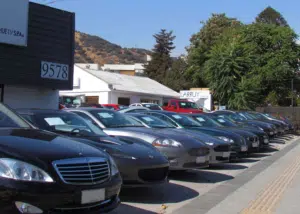
A Guide To Buying Your First Car
Buying your first car can be an exciting but also a daunting

Ex Demo Cars | Nearly New Cars
What are Ex demo cars or nearly new cars? Are they cars

Your rights when buying a used car from a dealer, private seller, or auction
Buying a used car can be a tricky process, especially if you’re
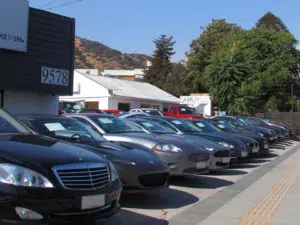
Pre-registered cars – how you can save money
Did you know that you can save money by buying a pre-registered

Car depreciation explained: future residual values and how they’re calculated
Car depreciation is the difference

A Guide To Modified Cars
If you’re thinking of modifying
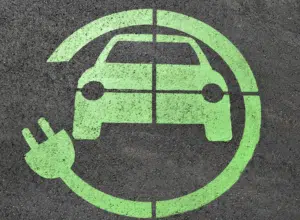
Electric Vehicle Drivers willing to pay more to reserve a public chargepoint
It turns out that electric vehicle drivers are willing to pay more

V4 Tesla Supercharger
The Tesla Supercharger network is expanding fast, providing reliable rapid charging throughout

Best electric cars for families 2023
Are you and your family ready to go electric? Well there’s no

How fast do Electric cars charge?
How quickly your electric car charges will depend on a variety of

More Articles

Can you believe it that electric vehicles (EVs) have experienced significant depreciation in the used car market over the past year?

So rumour has it that Renault is contemplating the revival of the Espace MPV, leveraging the flexibility of their electric car platforms to explore various body styles. The flexibility of the company’s electric car platforms enables it to explore and revisit a range of different body styles.
Did you know that Kia is expected to be launching nine electrified models by 2028? Word on the street is that hybrids will make up 20% of its sales in 2030, according to Car Scoops . Kia has ambitious plans that’s for sure, with an electrification plan and a goal of achieving 1.6 million annual electric vehicle sales by 2030 .

Are you ready to dive into the fascinating world of hybrid cars? Whether you’re a petrolhead or a green enthusiast, knowing your mild hybrids from plug-ins is essential! Understanding these different hybrid types helps us navigate the evolving automotive landscape and we’re about to dive right into it.

How speed awareness courses work and what you should know before doing one
In 2022, about 1.64million drivers attended a National Speed Awareness Course (NSAC) in the UK, registering a 113% increase since 2011 . After being caught exceeding the speed limit, motorists might be offered a speed awareness course as an alternative to penalty points, making it an appealing option for those who want to keep their driving licence clean.
In fact, on top of a minimum fine of £100 , speeding offences can cost you at least three points on your licence. Drivers have the option of attending an NSAC only if they’ve not been on one in the past three years. But, if it’s your first time attending, what can you expect from the session? Online car sales site cinch has shared some useful information about the course structure and how to make the most of its teachings.
Speed awareness course: how does it work?
The aim of a speed awareness course is to provide you with all the knowledge you need to drive responsibly when behind the wheel of your used Ford or VW.
Sam Sheehan, motoring editor at cinch, said: “Speed awareness courses are designed to teach offenders about the dangers of speeding, highlighting the impact it may have on themselves, their passengers and fellow road users. As a rough guideline, you are likely to be invited to attend the course if you were driving within 10% plus 9mph of the speed threshold. This means that, if a road’s speed limit is 50mph, you might qualify for an NSAC if you are going no faster than 64mph.
"You won’t receive a certificate at the end of the session to confirm you’ve ‘passed’. Instead, the course provider will get in touch with the police to inform them you’ve completed your NSAC.”
The structure
Speed awareness courses take place either in person or online – you’re free to choose which one suits you best. In-person sessions tend to last about four hours and cater for up to 24 motorists at a time. Online NSACs take about 2.5 hours to complete but can only host up to nine drivers.
At the start of the course, participants are sometimes prompted to interact and share their experiences about exceeding the speed limit. Real-life examples can offer the opportunity for a more engaging and thought-provoking discussion between the trainers and the participants.
Both in-person and online sessions will cover the same topics, including the advantages of speed limits, the consequences of speeding, and driver responsibility. So, whichever format you decide to attend, you’ll always benefit from the same content and knowledge.
Dos and don’ts at a speed awareness course
If you’re nervous about attending an NSAC, don’t worry. You’ll be in a calm, non-judgmental environment where the sole aim is to educate you on road safety.
However, there are a few things to keep in mind when booking a speed awareness course:
· Bring your driving licence and/or ID – Whether you’re attending an in-person or online session, you’ll always have to bring your driving licence with you and show it to your instructor. If you don’t have your licence on hand, two forms of ID will do.
If you don’t have any personal documents on you, you might not be allowed to join the course – even if you’ve already paid for it.
· Don’t be late – Punctuality is key when attending a speed awareness course. If you’re late, you won’t be able to enter the course and you might also be charged an additional fee.
You’ll have to rebook your session if you want to avoid points on your licence.
· Pay attention during the course – While you can’t fail a speed awareness course, there is a chance that being disengaged, distracted or not completing elements of the session could practically void your attendance. In fact, your course provider might inform the police, who in turn could hand out a fine and penalty points on your driving licence.
What can you learn from a speed awareness course?
NSACs provide offenders with a wide range of teachings about safe and responsible driving. Speeding at the wheel is a dangerous practice and is the cause of about 7.5% of all road accidents in the UK . This is why speed awareness courses focus mainly on the dangers of neglecting speed limits, as going too fast can bring about an array of unwanted risks.
For example, travelling at high speeds gives you less time to react to hazards ahead of you. It also affects your braking distance, meaning it will take you longer to stop the car when going faster than you should.
If you’re cruising along a built-up area in England, Scotland or Northern Ireland, the speed threshold is usually 30mph (unless signs show otherwise). By adhering to the 30mph limit, your stopping distance will be roughly 23 metres. If you’re driving at 40mph, however, the average stopping distance creeps up to about 36 metres, putting you at a higher risk of serious collisions.
Driving carefully and sticking to the legal speed limit allows you to have better control of the vehicle, a clearer vision of road signs, road users and potential hazards, and better judgment overall.
Speed awareness courses might be a daunting prospect for drivers who have broken the law, but, as well as sparing you from penalty points on your licence, NSACs offer motorists the chance to revise the importance of being responsible in the driving seat.
Make sure to bring your documents, be punctual and, most importantly, pay attention during the session. This will help you become a more conscientious, respectful driver to keep everyone safe on the roads.

How a speed awareness course works and what you should know before you go to one
Speed awareness courses are an alternative to prosecution and attending one means no points on your driving licence
- 11:11, 22 NOV 2023
- Updated 14:00, 22 NOV 2023

Keep up to date with the latest stories with our WalesOnline newsletter
We have more newsletters
In 2022, about 1.64million drivers attended a National Speed Awareness Course (NSAC) in the UK, registering a 113% increase since 2011 . After being caught exceeding the speed limit, motorists might be offered a speed awareness course as an alternative to penalty points, making it an appealing option for those who want to keep their driving licence clean.
In fact, on top of a minimum fine of £100 , speeding offences can cost you at least three points on your licence. Drivers have the option of attending an NSAC only if they’ve not been on one in the past three years. But, if it’s your first time attending, what can you expect from the session? Online car sales site cinch has shared some useful information about the course structure and how to make the most of its teachings.
Speed awareness course: how does it work?
The aim of a speed awareness course is to provide you with all the knowledge you need to drive responsibly when behind the wheel of your used Ford or VW.
Sam Sheehan, motoring editor at cinch, said: “Speed awareness courses are designed to teach offenders about the dangers of speeding, highlighting the impact it may have on themselves, their passengers and fellow road users. As a rough guideline, you are likely to be invited to attend the course if you were driving within 10% plus 9mph of the speed threshold. This means that, if a road’s speed limit is 50mph, you might qualify for an NSAC if you are going no faster than 64mph.
"You won’t receive a certificate at the end of the session to confirm you’ve ‘passed’. Instead, the course provider will get in touch with the police to inform them you’ve completed your NSAC.”
The structure
Speed awareness courses take place either in person or online – you’re free to choose which one suits you best. In-person sessions tend to last about four hours and cater for up to 24 motorists at a time. Online NSACs take about 2.5 hours to complete but can only host up to nine drivers.
At the start of the course, participants are sometimes prompted to interact and share their experiences about exceeding the speed limit. Real-life examples can offer the opportunity for a more engaging and thought-provoking discussion between the trainers and the participants.
Both in-person and online sessions will cover the same topics, including the advantages of speed limits, the consequences of speeding, and driver responsibility. So, whichever format you decide to attend, you’ll always benefit from the same content and knowledge.
Dos and don’ts at a speed awareness course
If you’re nervous about attending an NSAC, don’t worry. You’ll be in a calm, non-judgmental environment where the sole aim is to educate you on road safety.
However, there are a few things to keep in mind when booking a speed awareness course:
· Bring your driving licence and/or ID – Whether you’re attending an in-person or online session, you’ll always have to bring your driving licence with you and show it to your instructor. If you don’t have your licence on hand, two forms of ID will do.
If you don’t have any personal documents on you, you might not be allowed to join the course – even if you’ve already paid for it.
· Don’t be late – Punctuality is key when attending a speed awareness course. If you’re late, you won’t be able to enter the course and you might also be charged an additional fee.
You’ll have to rebook your session if you want to avoid points on your licence.
· Pay attention during the course – While you can’t fail a speed awareness course, there is a chance that being disengaged, distracted or not completing elements of the session could practically void your attendance. In fact, your course provider might inform the police, who in turn could hand out a fine and penalty points on your driving licence.
What can you learn from a speed awareness course?
NSACs provide offenders with a wide range of teachings about safe and responsible driving. Speeding at the wheel is a dangerous practice and is the cause of about 7.5% of all road accidents in the UK . This is why speed awareness courses focus mainly on the dangers of neglecting speed limits, as going too fast can bring about an array of unwanted risks.
For example, travelling at high speeds gives you less time to react to hazards ahead of you. It also affects your braking distance, meaning it will take you longer to stop the car when going faster than you should.
If you’re cruising along a built-up area in England, Scotland or Northern Ireland, the speed threshold is usually 30mph (unless signs show otherwise). By adhering to the 30mph limit, your stopping distance will be roughly 23 metres. If you’re driving at 40mph, however, the average stopping distance creeps up to about 36 metres, putting you at a higher risk of serious collisions.
Driving carefully and sticking to the legal speed limit allows you to have better control of the vehicle, a clearer vision of road signs, road users and potential hazards, and better judgment overall.
Speed awareness courses might be a daunting prospect for drivers who have broken the law, but, as well as sparing you from penalty points on your licence, NSACs offer motorists the chance to revise the importance of being responsible in the driving seat.
Make sure to bring your documents, be punctual and, most importantly, pay attention during the session. This will help you become a more conscientious, respectful driver to keep everyone safe on the roads.
- Most Recent


Home » Driving Laws » Speed Awareness Course

Speed awareness courses, everything you need to know
- November 3, 2021
What is a national speed awareness course?
If you’re caught speeding, you may have the option to attend and complete a speed awareness course. This is as an alternative to prosecution, fine and/or penalty points on your driving licence.
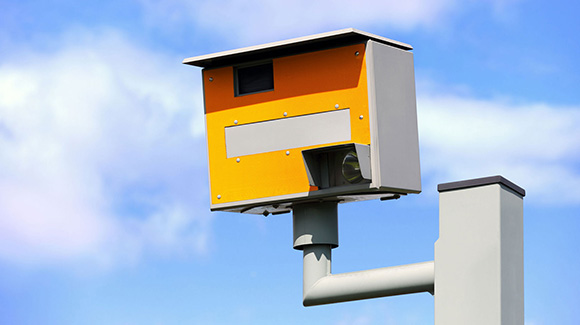
The course is a theory based workshop which contains a mixture of presentations, discussions, and activities. It is not intended to lecture you about your driving habits. Instead, it aims to positively change your attitudes and behaviours about road safety and reduce reoffending.
Due to the coronavirus pandemic, all classroom-based speed awareness courses are currently suspended. Online digital classroom courses are offered instead where possible.
Speed awareness courses are run by the National Driver Offender Retraining Scheme (NDORS). The police are not involved in the delivery of the course, although they are informed once someone has completed a course to ensure no further action is taken for the offence.
You must attend and complete the speed awareness course within 120 days from the date of your speeding offence.
By attending and completing a speed awareness course you avoid penalty points on your driving licence, which would normally result in higher motor insurance premiums. You also avoid paying a fixed penalty fine for speeding, normally £100. But you will have to pay to attend one of the speed awareness courses instead, which will be of similar cost. Furthermore, attending a speed awareness course is not a driving conviction.
What’s covered on a speed awareness course?
Some of the material covered on a speed awareness course includes:
- Understanding the importance of staying within the speed limits .
- How to identify the speed limits on certain roads.
- The reasons why drivers speed in the first place.
- Recognise what makes you speed e.g., being tailgated, overtaking and how to deal with these situations.
- What drivers can do to avoid speeding.
Each course can have up to 9 participants in the virtual classroom. It is an open discussion that encourages attendees to share their experiences with the group.
When would you be offered a speed awareness course?
Not everyone that commits a speeding offence will be given the option to attend a speed awareness course. It is at the discretion of each local police force.
You may be eligible to attend a speed awareness course if:
- You have admitted to being the driver of the vehicle at the time of the alleged offence and returned the documentation within 28 days from the date the notice was sent to you.
- If you haven’t attended a speed awareness course within 3 years of the new offence.
- There have been no further offences committed at the time of the new offence.
- The speed you were caught driving at was within an acceptable speed range, typically within the range of (10% + 2) mph to (10% + 9) mph over the limit. This excludes 20 mph zones and limits though.
If you’ve committed a speeding offence, the police will notify you within 14 days of the alleged offence. If you’re eligible to attend a speed awareness course, you will be given three options:
- Attend and complete a speed awareness course. Or
- Accept the conditional offer of fixed penalty, typically a £100 fine and have your licence endorsed with 3 penalty points. Or
- Request a court hearing to appeal the alleged offence.
You have 28 days from the date the notice was sent to you to book and pay for the speed awareness course or to accept the fixed penalty notice.
You can book a speed awareness course either online or via the telephone and there are a selection of course dates and times to choose from.
How much is a speed awareness course?
The cost to attend and complete a speed awareness course can typically vary between £80 and £100 depending on the local police force.
How long is a speed awareness course?
The course duration is around 2 hours and 45 minutes which includes the signing in process and a 10-minute break during the session.
Do I need to declare a speed awareness course to my insurer?
You do not have to inform your insurer that you have attended and completed a speed awareness course unless they specifically ask you.
Can you fail a speed awareness course?
There is no exam or test to take on the speed awareness course. But attendees are expected to attend the full session, take an active part in discussions, and demonstrate a willingness to change their attitudes and behaviour to road safety.
You will not be able to complete the course if you fail to meet this criteria to a satisfactory standard.
Will I need photo identification for the speed awareness course?
You will need to produce your photo card driving licence on the day of the course to confirm your identity. Your course trainer will usually ask for this during the initial registration at the start of the course.
It may be possible to use another form of photographic identification, but you will need to check this with your course provider beforehand.
If you do not have valid identification, you will not be able to attend the course.
What equipment do I need to attend the course?
The course provider will deliver the course via Zoom through a secure online video link.
To attend the course, you will need a device which has a microphone, front facing camera, stable internet connection and sufficient battery charge to last the full session. Smartphones and tablets are acceptable if they are compatible with the latest Zoom updates.
You will need to familiarise yourself with the equipment and network that you intend to use during the course. You may also need a notepad and pen to take notes.
Throughout the duration of the course, you should be on your own in a private room, with no distractions. This means switching off any other devices that you are not using to access the course. You should also ensure that no one else has access to the course material.
How long does a speed awareness course stay on your record?
Your record will be retained on a national police database for a period of 3.5 years. During which time you may not be eligible to attend another speed awareness if you reoffend.
Tips on how to avoid speeding
- Allow yourself plenty of time to complete your journey. This means plan your journey beforehand. Factor in weather conditions, traffic hotspots and any stop-offs along the way like rest breaks.
- When driving on built-up roads, assume the speed limit is 30 mph, unless you see signs that state otherwise. These built-up areas are usually identified by the presence of streets lights.
- Use your gears to control your speed, especially in built-up areas. Drop down to 3 rd gear when in a 30 mph zone, if necessary.
- Remember speed limits are set for a reason. Exceeding the speed limit to make up time on your journey will literally save you minutes off your journey time. It also puts you and other road users in danger.
- Around schools or when children are about.
- On busy or narrow roads.
- Where there are parked vehicles that reduce the width of the road you’re travelling on.
- In poor weather conditions.
- Narrow or bendy roads where visibility is restricted.
- At roadworks.
- In the presence of other pedestrians.
- If someone is tailgating you, ease off your speed to allow more space in front of your vehicle for them to overtake if necessary. Remember only a fool breaks the 2 second rule!
- Avoid distractions that may cause you to lose concentration like mobile phones, peer pressure from passengers, loud music and loose items that may move around.
Black box insurance
When faced with higher motor insurance premiums, young drivers may benefit from taking out a black box insurance policy . This requires the young driver to install a black box device in their vehicle that monitors their driving behaviour, including their speed. This helps to measure how safely they are driving.
Final thoughts
Many motorists exceed the speed limit without even realising. Getting caught speeding can happen to anyone. If you’re given the option to attend a speed awareness course, then this article has hopefully given you some insight into what to expect on the course.
- What happens if you go over the speed limit with a black box?
Share this article
Table of Contents

What Happens If You Drive In A Bus Lane By Mistake?

What Happens If You Speed With A Black Box?
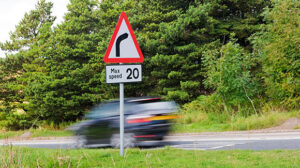
UK Speed Limits: Here’s What You Need To Know

Too Close For Comfort! Tailgating, Here’s What You Need To Know
We use necessary cookies to make our site work. We also use additional cookies to improve and analyse website traffic. By clicking ‘Accept’, you agree to our website’s cookies as described in our Cookie policy .
New report reveals how well speed awareness courses work
Be on the wrong end of one of these you could end up on a speed awareness course (Picture iStock/south_agency)
Are you an experienced driver who thinks they’re unlikely to be caught speeding? Or have you already been nicked exceeding the speed limit and don’t know whether to choose a speed awareness course? The most exhaustive study yet on the courses offered to drivers caught speeding reveals the answers.
The report commissioned by the government looks at the increasingly popular National Speed Awareness Courses (NSAC). It assesses who is offered the courses, who accepts, and what impact the courses have on their driving. Read on to find out if you fit the profile for drivers who take speed awareness courses.
What are speed awareness courses?
When drivers are caught speeding by a few mph, an increasing number of police forces offer the choice of NSAC. These are instead of the now traditional three points and a fine. Drivers pay to attend the courses but don’t then get points on their licence. Read more about speed awareness courses here .
How well do speed awareness courses work?
Let’s first assume that the success of these courses is judged by re-offending rates of attendees. If that’s the case, they are an overwhelming success. The report concludes: “Participation in the National Speed Awareness Course has a larger effect in reducing speed reoffending than the penalty points and fine associated with Fixed Penalty Notices.”
Drivers are between 12 and 23 per cent LESS likely to speed within six months of taking a course compared to if they choose the points and fine. And those who participate in a course have a significantly lower collision rate afterwards than those who take the points.
How many take speed awareness courses?
Numbers on speed awareness courses have tripled in the last six years (Pictures iStock/esp_imaging)
Participation has tripled between 2010 and 2016 as more police forces have been offering the courses. There were 6.6 million individual attendances between 2010 and 2016.
Who takes speed awareness courses?
If you’re an experienced driver and you’ve never been nicked for speeding, the likelihood is you could sooner or later end up taking one of these courses. An astonishing 96 per cent of course attendees had zero ‘live’ points on their licence. Three per cent had three points and the remaining 1 per cent had six points.
According to a previous report nearly two thirds of drivers (62 per cent) taking NSAC were male. On average they were 47-years old and had held a driving licence for 24.6 years. A third of course takers (37 per cent) had held their licence for 31 years or more. Just more than half (54 per cent) of participants were detected at between 6 and 8 mph over the speed limit.
Who doesn’t take a speed awareness course
The government’s data revealed that drivers who decline the course are more than twice as likely to have previous motoring convictions. It claims this indicates a greater risk-taking attitude towards driving. Drivers who decline the courses are also liable to have held their licence for longer than attendees.
However, the report also suggests the longer a driver has held their licence, the more effective a speed awareness course is. For every year a participant has held a licence there will be a 0.1 per cent reduction in the likelihood of them reoffending.
15 comments on “ New report reveals how well speed awareness courses work ”
“If you’re an experienced driver and you’ve never been nicked for speeding, the likelihood is you could sooner or later end up taking one of these courses. An astonishing 96 per cent of course attendees had zero ‘live’ points on their licence. Three per cent had three points and the remaining 1 per cent had six points.”
Where is the logic in saying experienced drivers who have never been caught speeding are “sooner or later” likely to take a speed awareness course? One has to be breaking a speed limit before being caught speeding. And what is “astonishing” that almost all of the attenders of such courses have no live points on their licences? Is someone trying to prove something that is not true?
I’m not sure what you’re trying to prove either? They’re just saying that it’s pretty common for people to have to do it, and that it’s mostly people who haven’t done any other motoring offences recently – and who have been driving for some time. hence “If you’re an experienced driver and you’ve never been nicked for speeding,”
Yes it’s a bit of a backwards logic that doesn’t really flow, a clumsy way of saying “hey look even drivers who seem to be good get sent of this course”.
I recently opted to take the coursse1. It was excellent and made me aware of how easy it is to drift into a speed just slightly over the limit
Vehicle manufacturers could have built in head-up speed displays a decade or more ago – but have chosen not to – while providing frivolous things such as heated motor adjusted seats and electronic parking brakes. If all drivers had their speed displayed on the windscreen in front of them at all times, then I am sure accidental breaking of speed limits would be greatly reduced.
Technology as it is today could prevent vehicles exceeding the speed limits and control forward dangers , prevention better than prosecution saving more lives.
The picture of a policeman using a hand held camera is misleading. I recently attended one of these courses.. All the participants had been caught by an automatic camera with no policeman in sight. An officer on the scene is able to use common sense and exercise discretion rather than automatically booking drivers.
I recently was caught a few mile over I was just coming out of a40 into 30 but obviously didn’t slowdown quick enough the policeman was hiding in the hedge side al in black just as you come out of 40 zone ,,so I’ve opted for the course …. has anyone took it is it like an exam can you fail it ?
I have to book one – its an obvious choice – I have no points and do not excessively speed but I do exceed the out of date speed limits on certain roads (like an empty motorway not outside a busy school)- I agree with the comments re cameras and judgement/perspective – a camera on Datford Tunnel Approached clocked me at 57 mph on a sunny morning a month ago at 7am – the road was clear dry – would I do it again based on safety and judgement yes – will I do it again -no because there I now know there is a camera there! how does that help in a world where roads are getting more congested and time=business productivity
Many newer vehicles have Sat Nav displays which warn when you exceed the speed limit. Vehicles also have speed limiters. Why not enable the Sat Nav to control the speed limiter so that the vehicle cannot exceed the speed limit?
I have just attended one of these courses, my letter said manual, so I’m assuming there was someone I failed to see with a hand held camera, I was clocked at 36 in a 30 mile limit, a bit too much for him to exercise discretion maybe!
Although there are home office recommendations for the use of vans containing speed cameras these recommendations are largely ignored by the operators. Typical examples are that the chevrons on the rear of the vehicle should be in plain view but vans are parked facing the oncoming traffic to hide them. It is recommended that they are not placed between parked vehicles, but they can be seen so parked. This information should be included in the notices sent out and motorists caught by such underhand methods should have a right of appeal.
Thank you, Tony. Home Office recommendations are just that. As with the 10 per cent plus 2 mph over the limit, any police force can set its cameras to what it likes. As I have said before, vehicle manufacturers should be compelled to install head-up displays on all vehicles, so that drivers do not have to take their eyes off the road to read speedometers. The technology is there, so why not do it?
i don’t speed so I wil never be on one of these courses
Money making…end of story
Got caught by an average speed limit camera set on a motorway with thousands of cones and not a single worker present. I was doing just over 50! These speed limits will remain in place until 2020 apparently so have increased my journey time from Kent to Gloucester by 2 hours!!! On another stretch where I obviously I managed to keep to the limit there were workers. Precisely seven were working. I counted them. The rest were sleeping in their cabs, on their phones, outside chatting, staring into space, or standing around leaning on shovels!
Leave a Reply Cancel Reply
Your email address will not be published.
You may use these HTML tags and attributes: <a href="" title=""> <abbr title=""> <acronym title=""> <b> <blockquote cite=""> <cite> <code> <del datetime=""> <em> <i> <q cite=""> <s> <strike> <strong>

National Speed Awareness Online Course iNSAC
TTC Group is pleased to confirm that, from Monday 6th April 2020, it will be delivering digital classroom-based National Speed Awareness Course (iNSAC) to members of the public who have already booked a place to attend a face-to-face course.
All face-to-face driver awareness courses were suspended on the 19th March 2020 as a result of guidance from UKROEd . This organisation oversees all police-referred driver offender retraining courses in the UK.
Where possible, online digital classroom courses will be offered to delegates on the same day that their face-to-face training was booked. However, the start time may be different as online courses will only have up to 9 delegates, compared with the 12-person maximum permitted on face-to-face classroom courses.
Booked delegates will not have to rebook their course; we will automatically send them joining instructions by email or text, which will contain a link to an “explainer video” confirming what to do next. Delegates will then need to confirm their attendance, or call us to re-arrange their booking. Priority for rebookings will be given to people close to their ‘critical date’ – the date by which a course has to be successfully completed.
We are adopting a leading video conferencing system which will enable delegates to confirm their identity to the trainer within a virtual waiting room, and then enter the online classroom for the duration of the course. The course duration is 2hours 45minutes, including the signing in process and a 10-minute break during the session.
Delegates will be able to see, talk to and message the trainer live. Also, all the content from face-to-face courses can be viewed online through a secure, video link. The technology required to participate is straightforward; a fully-charged laptop, tablet or phone, together with a webcam/in-built camera and good-quality access to the internet.
We are UK’s leading company delivering driver awareness and drink driving rehabilitation courses to members of the public that have committed a driving offence.
More information see police referred courses move to digital classroom .
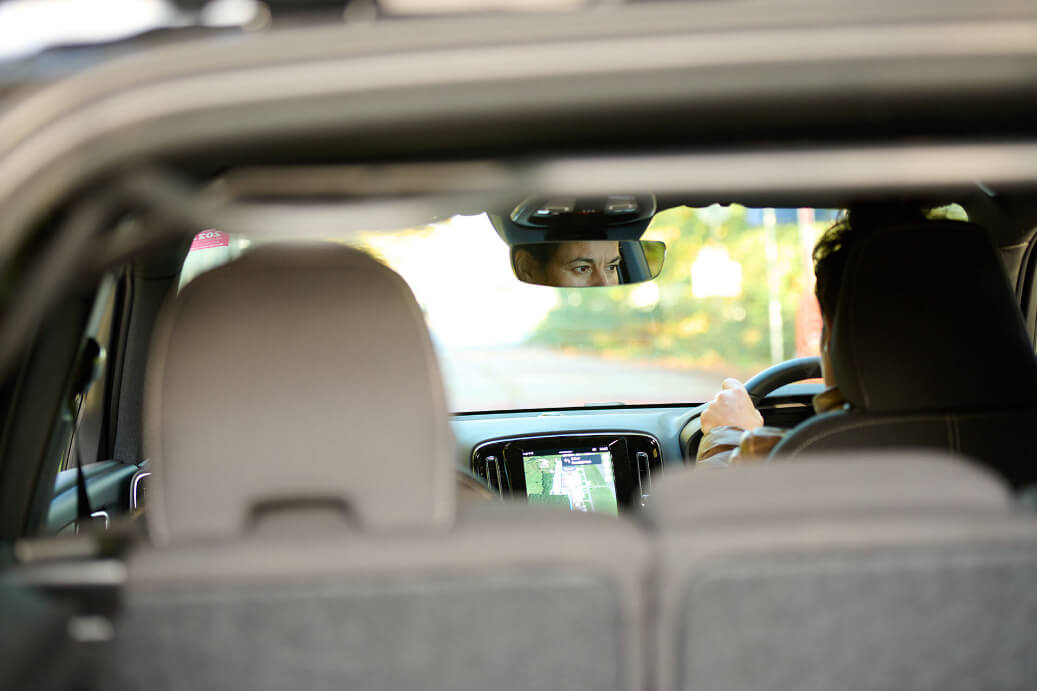
Get in touch
If you would just like to know about how any of our services could help meet your organisation’s objectives, drop us a line.
Licence Bureau is now part of the TTC Group

Existing Customers
APH Community > How do speed awareness courses work? Cost, penalty points and who will be offered one
How do speed awareness courses work? Cost, penalty points and who will be offered one
Here we take a look at the courses, what happens on them and who can take one.
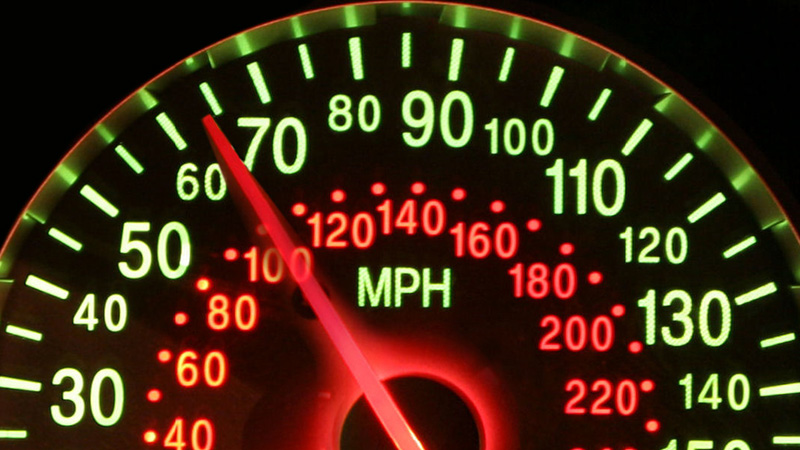
Out of the 1.4 million drivers sent on training courses in 2017, more than 1 million were for speeding offences, followed by around 100,000 drivers taking the ‘What’s Driving Us’ course, which covers a wide range of offences, such as drivers using a mobile phone at the wheel.
No. Certainly not. If appropriate, the police will offer the course to the driver – not the other way round.
The philosophy behind the course is that drivers can be diverted from prosecution if it’s clear that the offence amounted to a lapse of concentration or error of judgement.
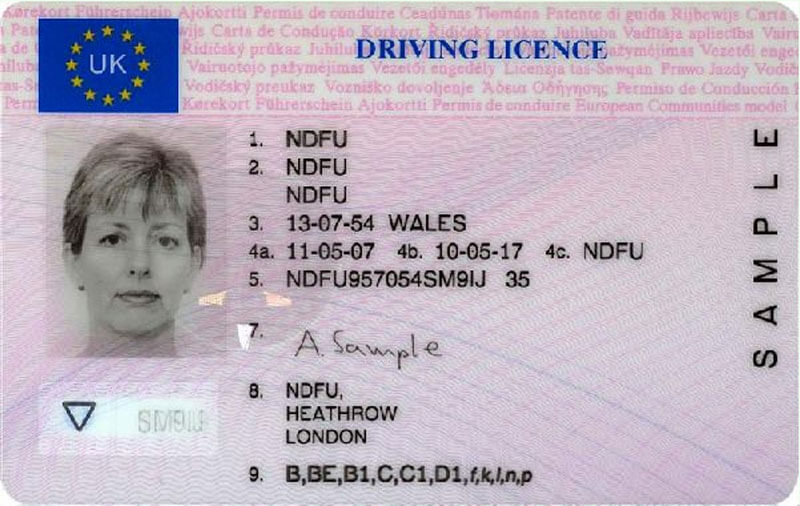
Completing the course can take up to four hours. There is no driving element – all training is theory-based and carried out in the classroom.
Almost certainly not. Offenders can choose any location that runs the appropriate awareness course. However, some police forces use an alternative to the national provider, NDORS, in which case it’s possible the driver could be made to return to where the offence was committed.
If you complete the course, you will not have penalty points added to you licence.
Any speeding offence committed within three years of the original offence, will mean you’re likely to face prosecution and at least three penalty points. Drivers will not be offered a second speed awareness course within this three-year period.
The price of the course varies across the country, but will typically cost around £100.

There is no pass or fail element to the course, but it must be completed for the offence to be dealt with in this way.
No, it does not. Attending the course calls a halt to any criminal proceedings.
The answer is no. Once the course is completed the case is closed.
Yes – if the licence is valid for the vehicle in which the offence was committed and if it the course is offered by the cops.
If you’ve been offered one by the police, you can book your course here.
Post navigation
Leave a reply cancel reply.
Your email address will not be published. Required fields are marked *
- Knowledge Centre
- Management Team
- Regional representatives
- RSGB Regions
- Road Safety GB Academy
- National Road Safety Conference
- Road Safety GB Awards
- Help & Advice
- Resources & Services
- Position statements
- East Midlands
- Northern Ireland
- Yorkshire & Humberside
New digital National Speed Awareness Course launched
Following the 12-week suspension of NDORS classroom-based courses, UKROEd is trialing an online version of the National Speed Awareness Course.
The move is part of the organisation’s response to the unprecedented challenges being caused by the ongoing coronavirus pandemic.
UKROEd has been working with behaviour change academics to develop and quality-assure the new ‘iNSAC’ , which will be available at the discretion of police forces across England, Wales and Northern Ireland.
The first courses were rolled-out on 27 March – just seven days after the classroom based courses were suspended .
Although much of the content of the iNSAC course remains similar to the classroom version, there are some changes:
- The online course is shorter, lasting approximately two and a half hours, compared with the four hour classroom-based course
- The ways in which course trainers interact with participants is different
- Clients work in groups of eight with one trainer, whereas the classroom version is based on 24 clients and two trainers
- Instead of receiving a logbook for the course, clients will need to have pen and paper available, as making notes and writing an action plan remain key parts of the online course
A UKROEd spokesperson said: “Our dedicated team members have worked together to review the classroom course and develop a high-quality digital option.
“The changes have been driven by the need to recognise that we interact differently online from how we interact in a classroom setting. It is also vital to understand that the course has to work on different technical delivery platforms, and it must work equally well for all clients who choose to take the option.”
The digital course will be reviewed after 12 weeks.
Leave a Reply Cancel reply
Your email address will not be published. Required fields are marked *
Save my name, email, and website in this browser for the next time I comment.
Your Name (required)
Your Email (required)
Your Message
Order by Latest first | Oldest first | Highest rated | Lowest rated
Nick: are you able to e-mail me Nigel’s article please?
Thanks, Hugh, I think we are going round the houses a bit on this one. I know and understand your thoughts about speed being the dominant thing. Yes, you obviously have to have the right speed for the circumstances but, because of generally low threat perception, most drivers’ speed is generally not low enough for the conditions at that moment. So they could still be within the legal limit and be potentially dangerous. ‘Legal’ obviously means at and not above the legal limit for that road. May I suggest you read my article which has been sent to Nick.
For those persons who disagree that for safety space is ultimately more important than speed for I refer them to my article ‘Space: The Real Key to Safety’, a copy of which has been sent to Nick Rawlings.
Our speed and space within which we can stop safely are obviously linked Nigel, but I think you’re talking about space from the vehicle in front (which we can see), whereas I am referring to regulating our speed to be able to avoid what we can’t see ahead of us, but which could appear in our path without warning e.g. pedestrian or cyclist or another motor vehicle. ‘Speed awareness’ and ‘always being in control and being able to stop’ I think are essentially the same thing. By the way, what does ‘doing the legal speed’ mean?
I think I understand what you are saying, Hugh but, your comment, ‘Speed awareness means always being able to stop – and in control’, actually means that you need the space to be able to stop in time. You can be doing the legal speed and still be highly vulnerable to a crash if you don’t have the distance to be able to stop before hitting the one in front. I am horrified by the spacing generally seen on motorways, for example, most doing around 70 (perhaps!) but with so little spacing that they are seriously like the next crash waiting to happen. So, sorry to contradict but, it is space which is the key, not speed. And clearly the government mantra which might suggest that speed alone is the solution does not properly address the point regarding safe road behaviour.
Our speed determines whether we can control our vehicles and avoid or stop in time to avoid the unexpected. The space in front of us is important – when we can see what is or isn’t within that space – but not when we can’t, so we have to regulate our speed for what we cannot see, but what we may anticipate. Speed awareness means always being able to stop – and in control.
I just wonder when the powers that be will understand that space is in fact more important than speed where safety is concerned. Not to say that speed has not got a part to play but, far too much emphasis is placed on this alone as though this is the key panacea, which it is not.
Will the cost of attending a digital diversion course be reduced to account for the removal of overheads of hiring out conference rooms, I wonder?
Creating confidence for drivers – AA’s new motoring manifesto
New research probes effectiveness of ar to improve self-driving car safety, have your say: young drivers & gdl, ‘eyes up, slow down, cross safely’, opinion: failure to introduce gdl ‘a major flaw in british policymaking’, “alarming” rise in theory test fraud, should drivers face mandatory first aid training, valerie singleton obe to host gem’s forthcoming summer holiday webinar, pilot to test the effectiveness of simulated hazard awareness training for motorcyclists, roadtrace connected vehicle insights ‘makes roads safer for drivers, cyclists and pedestrians’, aa renews call for drivers to ‘think bike’ as initiative reaches 10 years.
- News archive
Follow RSGB
Quick links.
- Media Centre
- Video archive
- Legal Statement
- Privacy policy
- Cookie Policy
- Refund Policy
- Financial Queries (Email)
RSGB Network
- Road Safety Knowledge Centre
- RSGB International
- Young Driver Focus Conference
- Joining the Dots Conference
- Older Road User Conference
Company Information
Company Name: RSGB Limited Company No. 8405185 The company is limited by guarantee Registered within England Registered charity No. 1153231
© RSGB
- Tips and advice
Speed awareness course: how long does it take, how much does it cost and who’s eligible?
If you’re caught speeding, you could take a speed awareness course instead of getting points on your licence – our guide explains all.

Even the most careful drivers can end up receiving a speeding notice in the post, but if the offence is only minor, you could be offered a speed awareness course, sparing you from receiving penalty points on your driving licence.
According to the most recent statistic from the UK Government, 45% of drivers exceed the speed limit on motorways, increasing to 50% in 30mph zones. As the number of speed cameras increases across the UK, the odds of being caught speeding have increased too. It’s not difficult to slip above the speed limit on occasion, whether it be through a momentary lapse in concentration or while overtaking. Not all speeding notices will result in points, however, and you may instead be offered a speed awareness course.

The courses last just under three hours, and since the Covid-19 pandemic it’s been possible to take a course online. It might seem like a hassle, but taking a speed awareness course can save you from getting penalty points on your driving licence .
What is a speed awareness course?
The purpose of a speed awareness course is as its name suggests: to refresh your knowledge of the potential dangers of speeding and the possible consequences of going too fast. It provides you with a chance to revisit the Highway Code, something many drivers haven’t looked at since they were learning to drive. It can be a useful exercise to improve your attitude towards safe driving and learn about updates and changes to the rules you may not be aware of.
Speed awareness courses are run by independent companies, so each differs slightly from the next. Depending on the provider, you may be able to choose between an in-person or virtual course.
Am I eligible for a speed awareness course?
If you’ve been caught speeding, you’ll receive a letter informing you of the consequences – there are three potential options: paying the fine and taking the points, going to court to settle it, or taking a speed awareness course with a slightly reduced fine and no penalty points if you’re eligible.
You’ll qualify for a speed awareness course if it’s your first speeding offence or if you haven’t taken the course in the past three years. On top of that, there are set speeds that qualify for a speed awareness course, so if you were speeding by more than these amounts, you won’t be given the option of a course – and it’s also at the discretion of the police force involved, so you won’t always be offered the option.
The amount by which you can break the speed limit and still be eligible to take a speed awareness course is between 10% of the speed limit plus 2mph, to 10% of the limit plus 9mph. However, this is dependent on the specific rules set out by the prosecuting police force.
- 20mph limit: speeding between 24mph and 31mph
- 30mph limit: speeding between 35mph and 42mph
- 40mph limit: speeding between 46mph and 53mph
- 50mph limit: speeding between 57mph and 64mph
- 60mph limit: speeding between 68mph and 75mph
- 70mph limit: speeding between 79mph and 86mph
How often can you take a speed awareness course?
Not every driver caught speeding will be offered the chance to take a speed awareness course, partly because not all police forces subscribe to the programme.
To qualify for a speed awareness course you can’t have already attended one in the previous three years. If you commit another speeding offence within three years of taking the course you will automatically receive a fine and points on your licence.
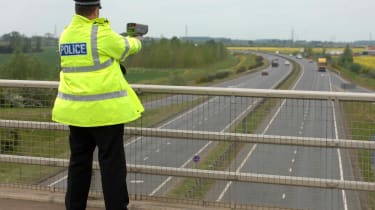
How much does a speed awareness course cost?
Different police forces across the UK use different organisations to provide the speed awareness course, and each charge a different amount. The cheapest in the country are just over £70, while the most expensive are nearly £100. Some providers may let you pay the course fee in instalments.
This is roughly the same as the standard Fixed Penalty Notice you’d receive for a speeding ticket (currently £100), but if you take the speed awareness course you don’t get any points put on your licence (a minimum of three points). Points on your licence will likely increase the cost of your insurance premium, so taking the speed awareness course will almost always be the cheaper option.
What should I expect from a speed awareness course?
Exactly what happens on a speed awareness course will vary slightly between different areas of the country. The speed awareness course session is run by a number of independent companies, including the AA. Although there’s no exam to pass, you have to display a ‘positive attitude’ throughout the course and contribute to group discussions.
The session is designed to explore why you were speeding in the first place, and reduce the likelihood of you speeding in future. It will include information about stopping distances, aims to improve your awareness of your surroundings, and helps you work out the speed limit of an unfamiliar road. It will also touch on the possible consequences of speeding, and ideally aid in your defensive driving abilities. Think of it as an advanced driving course, because you should find information learned from the session helpful on future drives.
Remember to take a form of photo ID with you (ideally a driving licence, or two alternate forms), and make sure you arrive at least 15 minutes before the course starts. You must attend the full duration of the course and, once completed, the course provider will notify the police that you’ve attended and you won’t face any further action.
Can I take a speed awareness course online?
Speed awareness courses moved online during the Covid-19 pandemic, so you had to join a video call to participate. These measures were necessary at a time when everyone had to stay at home, meaning that you didn’t have to travel to a centre to take the course.
Virtual courses are still offered, though they aren’t as widely available as they were a couple of years ago – so if you’re offered a course, you should probably prepare yourself for having to take it in person.
How long does a speed awareness course take?
Most courses currently state a time of around 2 hours and 45 minutes, with some time for a break in the middle of the session. If you do find an online course is offered to you, these may take a little less time. Courses take place throughout the week but also during the evenings and weekends, so you won’t necessarily have to take time off work to attend.

Can a speed awareness course affect your car insurance?
This is a slightly grey area. While any speeding convictions and points must legally be declared to your insurance company (or any potential insurer when getting quotes), the onus is on the insurer to ask whether you’ve taken a speed awareness course. While this is information many online comparison sites don’t require you to provide, some insurance companies do ask this question when you take out cover. If they ask, you are legally obligated to inform them about it, or else risk invalidating your policy.

It’s a sensible idea to go through your policy carefully to determine if this is an area your premium provider asked about when you took out your insurance. If it was, you should contact them and inform them you’ve taken the course. Do be aware that some companies will increase your insurance premium if they learn you’ve taken a speed awareness course. Despite the fact that you’ve not received any points on your driving licence, it's likely they’ll view you as more of an insurance risk than a driver who has not been caught speeding.
Speed awareness course: frequently asked questions
Can you fail the course.
If you don’t complete the course in a satisfactory way (quitting the workshop before it finishes or not actively participating), then you may fail the course. If this happens you’ll have to take the points or be summoned to court. It’s also highly unlikely that you’ll be refunded the cost of the course.
How many people will be on the course?
There will typically be two training staff, along with up to 24 attendees who have been caught speeding. Due to the Covid-19 pandemic, many areas are offering virtual speed awareness courses – and this has continued in some places, albeit not widely, since restrictions were lifted.
Is there any driving involved in a speed awareness course?
No, the course is classroom-based and you don’t need to bring your car if you don’t want to.
How do I book a speed awareness course?
Once you have received a Notice of Intended Prosecution from the police, you will need to accept the offer of a course and return the form within the time limit stated in your letter. The letter will tell you which organisation is providing courses in your area, and how to book online. You’ll receive a confirmation email with details of the location for an in-person course, or the access details for a virtual online course. You may need to complete a workbook and/or watch a short video before the start of the course.
Can I take a speed awareness course at the weekend?
Yes, depending on the course provider, some can be attended seven days a week. Booking is typically offered in the morning, afternoon, or evening. This may depend on availability, however.
Can I appeal rather than take a course?
You can, but this can be risky. If you appeal against a speeding notice, the option of a speed awareness course will be withdrawn, and if you end up going to court and losing your appeal, then you’ll be subject to much larger fines and more penalty points.
Driving made simple...
- Average speed cameras explained
- Driving licence penalty points
- Motorway driving tips
- Stopping distances explained
- What is a smart motorway?
- How to renew your driving licence
Charlie writes and edits news, review and advice articles for Carbuyer , as well as publishing content to its social media platforms. He has also been a regular contributor to its sister titles Auto Express , DrivingElectric and evo . As well as being consumed by everything automotive, Charlie is a speaker of five languages and once lived in Chile, Siberia and the Czech Republic, returning to the UK to write about his life-long passion: cars.
Recommended

Beat the Easter weekend traffic: secrets of a stress-free car getaway
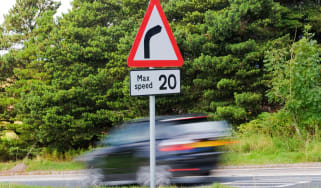
Speeding fines UK 2024: how much will I have to pay?
Most popular.

Engine management light: top 5 causes of amber engine warning light
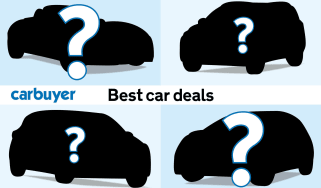
Best new car deals 2024: this week’s top car offers

Dacia introduces seven-year ‘Zen’ warranty for new and used cars
Tips & advice

Car dashboard warning lights: the complete guide

Electric car charging stations: a complete guide

PCP vs HP – which type of car finance is right for you?

Average speed cameras: how do they work?

Top 10 best car interiors

Top 10 best electric cars 2024

Top 10 best cheap-to-run cars 2024

The UK's top 10 fastest hot hatchbacks 2024
Your cookie preferences
We use cookies and similar technologies. You can use the settings below to accept all cookies (which we recommend to give you the best experience) or to enable specific categories of cookies as explained below. Find out more by reading our Cookie Policy .
Select cookie preferences
- Performance
- Functionality
- Account Overview
Popular Search Terms
- Samsung Galaxy deals
- iPhone deals
- SIM Only deals
- Credit Cards
- Pay as you Go
- Uswitch.com >
- Car insurance >
- Guides >
- Speed awareness courses explained - Uswitch
Speed awareness courses explained

What is a speed awareness course?
A speed awareness course is designed to reduce the likelihood of you speeding in the future, and includes information about the dangers you and others face if you speed.
A course will show you the consequences of driving too fast and then educate you on stopping distances, how to determine speed limits on varying types of roads, and how to improve your awareness of your surroundings when you’re behind the wheel.
Although you won’t have to pass an exam, you’ll be expected to demonstrate a ‘positive attitude’ during the session and contribute to group discussions.
What happens on a speed awareness course?
Speed awareness courses are theoretical and don’t involve any hands-on driving.
The sessions include videos that show you the dangers you cause when you speed, and there will be discussions between the attendees and the course leader.
There will also be information about how to understand what the speed limits are on roads you don’t know, and how to avoid being pressured by other drivers into speeding.
How much does a speed awareness course cost?
A speed awareness course isn’t much cheaper than a speeding fine, with the typical cost being about £85. But opting to take the course over receiving penalty points could save you money in the long run, as car insurance premiums can jump significantly if you’re given points.
When would I be offered a place on a speed awareness course?
To be offered the option of going on a speed awareness course rather than paying a fine and getting points on your licence, you must fit the following criteria:
It must be your first offence in the last three years
You've been caught driving over 10% plus 2mph of the limit, but below 10% plus 9mph. In other words, if you were in a 30mph zone, this means anything between 35mph and 42mph, while for those driving in a 70mph zone, it means anything between 79mph and 86mph.
Otherwise, you’ll have no choice but to receive a fixed penalty notice and a minimum of three points on your licence.
What happens if I don’t go on a speed awareness course?
If you simply just don’t turn up to your speed awareness course without giving a valid excuse, you should expect to receive a court summons and – if you’re found guilty – a fine and points on your licence.
If you can’t attend because your availability changes, you should get in touch with the course provider as soon as you can to rebook.
Will attending a speed awareness course affect the cost of my car insurance?
Insurers take the view that drivers who have committed a speeding offence are a higher risk than those who don’t.
Generally, however, having points on your licence will have a greater effect on your premiums, and your insurance costs could increase for up to 11 years, depending on the seriousness of the offence.
If you accept a place on a speed awareness course instead, your licence will remain points-free and the impact on your car insurance cover should be less.
But even if your insurer does want to know if you’ve been on a speed awareness course, in reality, many of them don’t increase premiums for a single offence
Do I have to tell my car insurance provider I’ve been on a speed awareness course?
Bear in mind that any speeding convictions and points must legally be declared to your insurance company – even when shopping around on a comparison website.
But the onus is on the insurer to collect all the information they need from you to provide cover, not for you to declare everything that they think might be important.
What’s more, the police and local authorities don’t inform insurers about speed awareness courses, either.
But don’t be tempted to withhold this information in a bid to keep your costs down. If you have been asked by an insurance provider if you’ve been on a speed awareness course, you must answer truthfully or you’ll risk invalidating your policy.
If you have already taken out a car insurance policy but unintentionally failed to declare a speed awareness course, you should contact them and inform them you’ve taken the course.
There is a chance that your premiums will increase, but if you’re caught lying then your insurance will be invalidated, and the financial and legal implications of driving without insurance are far greater.
Get a car insurance quote
See a range of car insurance quotes in just a few minutes when you compare with Uswitch
How long is a speed awareness course?
A speed awareness course typically lasts for between four and five hours.
When can I take a speed awareness course?
Speed awareness courses are held at various times during the week, and at weekends and in the evenings, so you should be able to find one at a time that you can manage.
Can you fail a speed awareness course?
You can’t ‘fail’ a speed awareness course because there isn’t a test to take at the end of it. But if you don’t turn up, don’t take it seriously or walk out halfway through, you’ll get the points on your licence and the fine, or be summoned to court.
How many times can you take a speed awareness course?
You can take a speed awareness course once every three years. If you’re caught speeding again within three years, you won’t be able to take another course – you’ll get points on your driving licence and a fine.
How do I book a speed awareness course?
If you're caught speeding and you are eligible to go on a speed awareness course rather than being given points and a fine, the police will let you know and give you details about how to register for a course.

Car insurance for convicted drivers - Uswitch
Find out how to get car insurance if you’ve got a driving conviction - what are the restrictions and is it more expensive?

Am I insured to drive someone else's car? - Uswitch
Before you borrow a friend's of relative's car, do you know whether you're insured? Even if you have your own comprehensive car insurance policy, you may not be covered to drive another vehicle.

20 tips to get cheaper car insurance - Uswitch
Read our guide and discover 20 ways to cut the cost of your car insurance, from choosing the right car to paying upfront for your insurance cover.

How does online driver awareness course work?
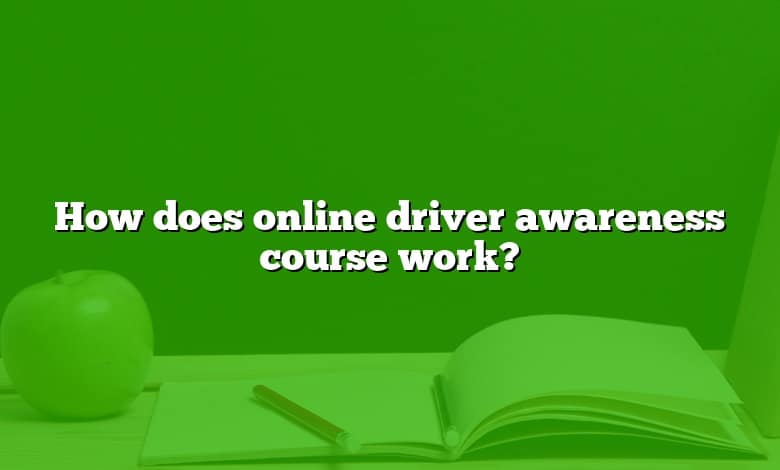
With this article you will have the answer to your How does online driver awareness course work? question. Indeed E-Learning is even easier if you have access to the free E-Learning tutorials and the answers to questions like. Our CAD-Elearning.com site contains all the articles that will help you progress in the study of this wonderful software. Browse through our site and you will find different articles answering your different questions. The use of parametric design in E-Learning makes it a powerful tool for designers and engineers. The designer can observe the impact of adjustments on neighboring components or even on the entire solution. This makes it quick and easy for designers to identify and solve problems. And here is the answer to your How does online driver awareness course work? question, read on.
Introduction
An online speed awareness course includes the same content as a face-to-face session, just with a much smaller group. Again, you must stay for the entire session or your case will be referred back to the police.
Subsequently, what do you do on a zoom speed awareness course? You’ll learn how to identify speed limits, the consequences of speeding, the benefits of sticking to the limit, and how to avoid speeding again. There is no driving, and no test. You can now complete the 2¾ hour course : EITHER – online from the comfort of your own home using ZOOM with 9 clients and our Trainer.
Frequent question, what happens on an online speed awareness course UK? A virtual speed awareness course session is usually two and a half hours long with a 10-minute break in-between. You’ll be sent instructions on how to join using a secure link and attend the online sessions. In case you’re unable to attend the course , you can usually reschedule your booking.
In this regard, can you fail a speed awareness course? A speed awareness course does not contain any tests, so technically you cannot fail a course . However, the workshop leaders will expect you to engage and to take part in discussions. After the course, they’ll call the police to let them know that you’ve fulfilled your commitment.
Best answer for this question, will I be asked questions on a speed awareness course? This depends entirely on whether or not the insurer asks the question. If they do not ask, it cannot be used as a factor when working out your premium. However, if you are indeed asked whether you have attended one, you will need to answer honestly, and your premium may be affected depending on underwriting criteria.The session is designed to reduce the likelihood of you speeding in future, and will include information about stopping distances, improving awareness of your surroundings, and working out the speed limit of an unfamiliar road. It will also touch on the possible consequences of speeding.
- How long does a speed awareness course stay on record?
How long does a speed awareness course stay on your record? Your record will be retained on a national police database for a period of 3.5 years. During which time you may not be eligible to attend another speed awareness if you reoffend.
What does a speed awareness course involve?
What Does the Speed Awareness Course Involve. The National Speed Awareness Course is a theory-based workshop designed to help drivers recognise speed limits on different types of roads, address the reasons for their speeding and provide information that will help reduce the likelihood of speeding in the future.
- Do I have to tell my insurance company about a speed awareness course?
Do I have to tell my insurance provider? You don’t legally have to tell your insurance provider that you’ve been on a speed awareness course, unless they specifically ask you. You won’t be asked when starting a quote with us, as it’s not classed as a driving conviction.
- Can you still drive with 12 points?
If I receive 12 points or more, can I continue to drive? If the Court imposes points for the offence you face which ‘tot up’ to 12 points or more, the Court will look to impose the ‘totting up’ ban. A totting up ban will disqualify you from driving for a period of six months from when the ban is imposed.
- Do you have to declare speed awareness course to insurance direct line?
Like Direct Line, AXA and Swiftcover do not make policy holders tell them if they’ve completed a speed awareness course. Your policy is still valid if you keep it to yourself.
Are speed awareness courses boring?
The speed awareness course is a little boring, as I imagine it’s meant to be, and requires a certain amount of submission: it’s important to be earnest.
- Can I do a speed awareness course on my phone?
Can You Do a Speed Awareness Course Online? Currently, all speed awareness courses are offered online. These sessions are only 2 1/2 hours long, with a 10-minute break. For an online speed awareness course, you need a fully charged laptop, phone or tablet with a webcam/camera and access to fast internet.
- Does 3 points increase insurance?
However, bearing all that in mind, research suggests three points could raise a driver’s car insurance premium by an average of 5%, while six penalty points could push the cost of insurance up by an average of 25%.
- How long does 3 points stay on your licence?
How long do licence offence points stay on your licence? For offences related to your driving licence, you will have received 3 to 6 points which remain for 4 years from the date of the offence.
How many times can you be offered a speed awareness course?
You’re only allowed to take the speed awareness course once every three years.
Do you have to tell insurance about points straight away?
Immediately or at renewal: Most insurers only ask you to declare any points received while you’ve been covered by them at renewal time, but some state in their terms that you must tell them as soon as you receive the conviction, so do check.
- How much does 3 points increase car insurance 2020 UK?
If you have three points on your licence for an offence like speeding or not complying with traffic lights, your car insurance could increase by 5%. If you have more than 12 points on your record, the annual cost of your insurance could rise by 89%.
- Is it better to do a speed awareness course or take the points?
“Actuarially, those who have committed a speeding offence are more likely to go on to make a fault claim,” he says. “But those who go on a speed awareness course learn something, don’t collect points and we believe, go on to be better drivers and thus less likely to make a fault claim.” Robertson agrees.
Is the speed awareness course online 2022?
Yes, you can. There are some police stations that offer speed awareness courses online.
- Does a speed awareness course show on your licence?
Generally, this is between the speed limit + 10% + 2mph, and the speed limit + 10% + 9mph. This means if you were in a thirty zone, you would be eligible if you were caught doing between 35 and 42 mph. Higher and you’ll automatically get points on your driving licence and a fine.
Wrapping Up:
I sincerely hope that this article has provided you with all of the How does online driver awareness course work? information that you require. If you have any further queries regarding E-Learning software, please explore our CAD-Elearning.com site, where you will discover various E-Learning tutorials answers. Thank you for your time. If this isn’t the case, please don’t be hesitant about letting me know in the comments below or on the contact page.
The article provides clarification on the following points:
Adblock Detected

An official website of the United States government
Here’s how you know
Official websites use .gov A .gov website belongs to an official government organization in the United States.
Secure .gov websites use HTTPS A lock ( Lock A locked padlock ) or https:// means you’ve safely connected to the .gov website. Share sensitive information only on official, secure websites.
- Press Releases
- DHS Launches Know2Protect™ Public Awareness Campaign to Combat Online Child Exploitation and Abuse With Many Public and Private Sector Partners
DHS Launches Know2Protect™ Public Awareness Campaign to Combat Online Child Exploitation and Abuse With Many Public and Private Sector Partners, including Google, Meta, Snap, Roblox, NASCAR, U.S. Olympic & Paralympic Committee, Boy Scouts of America, National Police Athletic League, and More
There Were Over 36 Million Reports of Suspected Child Sexual Exploitation in 2023, More Than Twice the Number Reported in 2019
Department’s New Know2Protect.gov Campaign to Provide Young People, Parents, Community Leaders, and Educators with Resources to Better Prevent and Educate Themselves on These Crimes
WASHINGTON, D.C. – Today, the Department of Homeland Security (DHS) announced Know2Protect, Together We Can Stop Online Child Exploitation ™ , a first-of-its-kind national public awareness campaign that brings together public and private sector partners. Key partners include high-profile technology companies, national and international sports leagues, youth-serving organizations and nonprofits, and other private sector partners to raise awareness of this heinous and growing crime and how to keep children safe. Through Know2Protect, DHS and its partners will educate and empower young people, parents, and trusted adults on ways to prevent and combat exploitation and abuse both on and offline, explain how to report incidents of these crimes, and offer support resources for victims and survivors of online child sexual exploitation and abuse.
Online child exploitation and abuse is reaching epidemic proportions and threatens the safety of children globally. In 2023, the National Center for Missing and Exploited Children (NCMEC) received more than 36 million CyberTipline ® reports of suspected online child sexual exploitation and abuse (CSEA), a 360% increase over the number of reports received 10 years ago. According to the 2023 WeProtect Global Threat Assessment, the volume of child sexual abuse material has increased globally by 87% over the past five years.
“All of us, working together, must protect our children from the heinous and growing crime of online child sexual exploitation and abuse. The tragic reality is that, as young people spend more time online, predators around the world increasingly target them through manipulation and deceit,” said Secretary of Homeland Security Alejandro N. Mayorkas . “Know2Protect is a first-of-its-kind national initiative to raise public awareness and prevent these horrific crimes from happening in the first place. Public-private partnerships and targeted trainings are essential to raising awareness and educating the public; identifying, protecting, and supporting victims; and bringing perpetrators to justice. By partnering with national sports leagues, youth-serving organizations, and gaming, technology, and other private sector organizations, Know2Protect will help educate the public, save lives, and prevent tragedies.”
Know2Protect is the first federal government campaign focused on education and prevention of online CSEA. The campaign’s mission is to mobilize young people, parents, educators, and community leaders to learn the signs of this crime, what they can do to prevent it, how to report it to law enforcement, and how they can support survivors. The Know2Protect.gov website, launching today, is being advertised in 25 media markets and online through digital and physical billboards, posters, as well as displays across the country. The campaign will reach millions of Americans where they are and will disseminate resources to educate the public about this crime — including a portal specifically for kids ages 10 and older — and empower them with resources and tools for people to protect themselves and others against online CSEA.
To reflect the importance of a unified commitment to combat the dramatic and alarming increase of online child sexual exploitation and abuse, today DHS is announcing partners from across society – from social media and technology companies to sporting leagues and youth-serving organizations – that have already joined Know2Protect in its important mission. More partners will join the campaign in the coming months.
“The best way to keep kids safe online is to provide helpful information where they are: on social media and online gaming platforms, and through clubs, sporting events, and organizations. By partnering with a range of companies to raise awareness and disseminate educational messaging, we are keeping kids safe from online predators,” said Know2Protect Campaign Director Kate Kennedy . “We are grateful for all of our partners who share a commitment to combat online child sexual exploitation and abuse and keep children safe as a result.”
The National Center for Missing & Exploited Children (NCMEC) has been working with the Department on the development of Know2Protect assets and concepts since its inception. NCMEC subject matter experts and its survivor network reviewed campaign materials to ensure they were appropriate and educational for all audiences.
“Online Child Sexual Exploitation and Abuse is a growing global concern, and NCMEC is at the forefront of addressing it. The exponential rise in CSEA within the past year underscores the urgency of our mission,” said NCMEC Chief Operating Officer Derrick Driscoll . “NCMEC applauds any initiative or governmental effort aimed at raising awareness about this crime. The Know2Protect campaign helps to do just that. Collaborating globally is crucial to prevent these crimes from happening and families and children should know they are not alone in this fight.”
TECHNOLOGY PARTNERS
Google LLC is donating ad credits for Google display, YouTube, and Google Search, which will bolster the reach of the campaign in order to educate as many young people, parents, educators, and community leaders as possible on the signs of child exploitation and abuse and how to keep yourself and others safe both on and offline.
“We are proud to donate Search and YouTube ads to support the DHS’ campaign raising awareness on the issue of child sexual abuse and exploitation online, including sextortion,” said Google.org Senior Director Annie Lewin . “Through our broader child safety work, we know how impactful it can be to provide young people and parents with information and tools on how to report these crimes and find resources. By donating ads, we hope to help the DHS reach a wider audience and further educate the public on this timely and urgent issue.”
Intel Corporation is inviting Know2Protect staff to deliver awareness trainings to their staff yearly.
“Intel is proud to support the Know2Protect campaign through education of our employee base to amplify awareness and enable parents and their families to stay safe online,” said Intel Corporate Board Member of NCMEC and Intel Chief Product Sustainability Officer Jen Huffstetler .
Meta Platforms, Inc. will support the DHS to promote the Know2Protect campaign on Facebook and Instagram, raise awareness about these crimes and how to recognize them, and direct people to information and resources that can support them.
“Child exploitation is horrific. We work aggressively to fight the criminals behind it, from the new tools we announced just last week to protect teens from financial sextortion, to supporting law enforcement in investigating and prosecuting offenders,” said Meta’s Global Head of Safety Antigone Davis . “We’re pleased to support the Department of Homeland Security in its campaign, which will raise awareness of these crimes, help parents and teens spot potential risks, and direct them to support.”
Roblox Corporation will display in-game billboard advertisements for users of its online platform. These advertisements will share helpful tips for gamers on internet safety and best practices. In the future, Roblox will work with Know2Protect to develop in-game immersive experiences, such as building characters from the campaign’s iGuardian training program and Know2Protect badges for Roblox users.
“Roblox is built on a foundation of safety and civility, and we are proud to support the Know2Protect campaign,” said Roblox Vice President of Civility Tami Bhaumik . “By educating and empowering people with the knowledge and tools to prevent harm, collectively, we will be in a stronger position to prevent abuse from happening. Sometimes these are difficult issues to talk about, which makes resources and tools all the more important. We are honored to be part of the solution to amplify this important campaign.”
Snap Inc. , Know2Protect’s first official partner, is providing Know2Protect in-platform ad credits on its Snapchat platform and conducting research to gauge Snapchatters’ awareness and familiarity with a variety of sexual-related online risks. In the United States, more than 100 million people use Snapchat to communicate with their friends and family, including more than 20 million teenagers. In addition, Snap will promote the Know2Protect website on its dedicated online Privacy and Safety and Parents Hubs.
“These horrific crimes can’t be ignored – they need to be discussed in the halls of government, at boardroom tables and at kitchen tables. Young people need to be attuned to online sexual risks, and adults need to understand the issues so they can help young people in crisis,” said Snap Inc Global Head of Platform Safety Jacqueline Beauchere . “That’s why Snap is honored to be a founding partner of Know2Protect, and to help share educational resources with the millions of teens who use our app daily to communicate.”
NATIONAL AND INTERNATIONAL SPORTING LEAGUE PARTNERS
Major League Baseball (MLB) , through their MLB Together CSR platform, will display Know2Protect physical advertisement collateral, such as posters, at the host venue for 2024 MLB All-Star Week in July, and also list Know2Protect on MLBTogether.com as a trusted youth safety resource for players and families to access.
“MLB is proud to join the Know2Protect awareness campaign to address this important issue affecting far too many families in our world,” said Major League Baseball Vice President of Social Responsibility April Brown . “Our Midsummer Classic provides an outstanding platform, through our MLB Together initiative, to share this critical information with families across the country.”
Major League Soccer (MLS) will highlight the campaign during the July 24, 2024 MLS All-Star Game presented by Target.
“The mission of Know2Protect to keep children safe from online exploitation is vitally important at this time, and Major League Soccer considers it an honor to work with the Department of Homeland Security, Secretary Mayorkas, and the NCMEC on this global campaign,” said MLS Commissioner Don Garber . “We are dedicated to using the platforms of our league and 30 clubs to share the resources and guidance of Know2Protect, and to do everything in our power to assist in the fight against the abhorrent crime of child exploitation.”
NASCAR will display Know2Protect promotional assets and materials during races around the country.
“NASCAR is proud to partner with the U.S. Department of Homeland Security to help raise awareness of its important Know2Protect initiative,” said NASCAR President Steve Phelps . “The DHS has been a strong partner to NASCAR over the years, and we’re honored to have been asked to take part in this vital program that protects children throughout this great country.”
The National Football League (NFL) will work to amplify the Know2Protect campaign by raising awareness among clubs and players, and running Know2Protect public service announcements on various platforms, including NFL Media.
“Keeping our children safe is something we can all agree on, and the NFL is proud to support DHS’ efforts to stop online abuse and exploitation,” said NFL Senior Vice President and Chief Security Officer Cathy Lanier . “We commit to using the league’s platform to raise awareness about this real and growing threat, and to highlight a national campaign to protect young people from predators and other bad actors.”
The National Hockey League (NHL) will display advertisements and host in-person events at its games, while also amplifying campaign messaging on its network and among its various social media platforms.
“The National Hockey League is proud to support this vital initiative and contribute to the protection of our nation’s youth and most vulnerable,” said NHL Senior Executive Vice President and Chief Security Officer Jared Maples .
The United States Olympic & Paralympic Committee (USOPC) will work with Know2Protect to provide virtual presentations to Team USA athletes and parents on the threat of online CSEA and the preventative strategies they can implement to keep all Team USA Athletes safe.
“Keeping Team USA athletes safe where they live, train and compete is the USOPC’s top priority. As part of that effort, educating athletes and their support communities is an essential step in prevention,” said USOPC Senior Vice President and Chief of Security & Athlete Services Nicole Deal . “We are happy to partner with Know2Protect as an important part of our holistic commitment to creating safe environments and providing more resources for Team USA athletes.”
YOUTH-SERVING ORGANIZATIONS
Boy Scouts of America (BSA) will collaborate with Know2Protect to promote knowledge sharing and empowerment for youth and parents. The BSA will also facilitate Project iGuardian presentations for Scouts and parents and explore developing a co-branded BSA patch in recognition of taking an in-person Project iGuardian training at the local or national level.
“Safeguarding our Scouts so that we can prevent harm will always be our most important mission, and that includes their online safety,” said Boy Scouts of America President and CEO Roger Krone . “Through this collaboration with DHS, Scouting will make the Know2Protect resources available to empower more than a million youth members and adult volunteers, further enhancing our education and training initiatives to help ensure that our Scouts, leaders, and their families remain safe from online dangers.”
National Police Athletic League (National PAL) will host Know2Protect representatives to train its members across the nation at both the National PAL Conference and Youth Mentoring Summit. National PAL will also amplify campaign resources in its webpage and on social media platforms monthly. National PAL is committed to protecting the youth at all costs and greatly supports this effort put forth by the Department of Homeland Security.
“National PAL is extremely excited and honored to partner with the Department of Homeland Security on the Know2Protect campaign. Know2Protect provides another tool for youth, parents, educators, coaches etc. to keep our youth safe from online predators,” said National PAL Board President Christopher Hill . “Today, National PAL will be rolling out the K2P campaign to all of our member chapters immediately to ensure that we are further prepared to protect our youth at all levels! We will make sure our youth are aware that no matter the threat, the iGuardians are there to support and protect them!”
LAW ENFORCEMENT ASSOCIATIONS
Law enforcement officials across the country are joining the campaign, including the National Fusion Center Association, International Association of Campus Law Enforcement Administrators , and Small & Rural Law Enforcement Executives Association . These law enforcement associations have committed to partnering with the campaign to share information and resources with their members and the communities that they serve; amplify the tools through their communication platforms and channels; and amongst other activities, collaborate with the Department moving forward to further develop training programs for state, local, tribal, territorial, and campus law enforcement across the country.
“The National Fusion Center Association (NFCA) is proud to be a partner with the Know2Protect Campaign. Our National Network of 80 State and Major Urban Area Fusion Centers, was built on the foundation of helping to protect America through threat detection, criminal intelligence analysis, and information sharing,” said NFCA President Mike Sena . “We are honored to be working with the Know2Protect Campaign in its effort to empower children, teens, parents, trusted adults, and policymakers to prevent and combat online child sexual exploitation and abuse.
“Our children are one of the most vulnerable members of our society. We must do all we can to fight those who would exploit and take advantage of them,” said IACLEA Executive Director Paul Cell . “International Association of Campus Law Enforcement Administrators (IACLEA) stands united and in support of the work K2P is doing to insure our children are educated on the dangers of online predators and how they can identify when they are being targeted.”
“The Small and Rural Law Enforcement Executives Association (SRLEEA) wholeheartedly endorses the DHS's Know2Protectcampaign, highlighting its vital role in smaller, rural, and tribal communities. These areas often encounter increased risks due to scarce resources, and this initiative is crucial for providing necessary awareness and tools to combat online child exploitation. The impact of Know2Protect in empowering our communities and law enforcement to protect our most vulnerable from these evolving threats is invaluable," said Chair of the SRLEEA Human Trafficking Committee Sheriff Kim Stewart .
Know2Protect is the latest example of DHS’s ongoing efforts to address online child sexual exploitation and abuse and comes after the Department’s Quadrennial Homeland Security Review added combating crimes of exploitation and protecting victims as a sixth mission area in April 2023. Learn more about recent DHS efforts to combat child exploitation and abuse .
Know2Protect will highlight the whole of DHS efforts to combat online CSEA, including:
- Homeland Security Investigations (HSI), which serves as the principal investigative arm of DHS and protects the public from crimes of victimization, including child sexual exploitation. HSI works to investigate, apprehend, and prosecute offenders and identify, protect and support victims. HSI also prevents transnational child sexual abuse, including those who travel internationally to engage in illicit sexual conduct with minors. HSI oversees Know2Protect and Project iGuardian, Know2Protect’s educational program to teach the public about the ongoing threats children and teens face from online predators.
- The U.S. Secret Service supports the protection of minors from CSEA through advanced investigative and forensic support to state and local law enforcement agencies, such as providing support for polygraphs of suspected perpetrators, advanced analysis of photo or video evidence, and assistance on cases related to missing and exploited children. The U.S. Secret Service’s Childhood Smart Program, created in partnership with the National Center for Missing and Exploited Children, educates parents, children, and teens about internet and personal safety.
- The Cybersecurity and Infrastructure Security Agency (CISA) administers SchoolSafety.gov, a collaborative, interagency website that provides schools and districts with actionable recommendations to create safe and supportive environments for students and educators. The site is an access point for information, resources, guidance, and evidence-based practices on a range of school safety topics, including online exploitation.
- The DHS Science and Technology Directorate supports DHS offices by providing technical and scientific expertise. It also researches, develops, and deploys leading-edge forensic tools and technologies.
The campaign will continue to spread prevention and awareness messaging through partnerships, a robust social media presence, and training and outreach to schools and communities through age-appropriate educational presentations provided by agents from Homeland Security Investigations and the U.S. Secret Service.
To demonstrate the Department’s unified focus on combating cybercrimes, Secretary Mayorkas redesignated the HSI Cyber Crimes Center as the DHS Cyber Crimes Center (DHS C3), strengthening the Department-wide effort to combat cyber-related crimes and online CSEA. The Department works alongside our U.S. and international government partners to raise awareness of these threats, investigate, apprehend, and prosecute offenders, and to identify, protect, and support victims. The entire Biden-Harris Administration has identified online child safety and security as a top priority, creating the White House Online Harassment and Abuse Task Force , the Kids Online Health and Safety Task Force , and the Australia-U.S. Joint Council on Combatting Online Child Sexual Exploitation , all of which the Department plays a leading role.
The Department’s participation in multilateral partnerships, such as the Five Country Ministerial, has led to important initiatives such as the development of the Voluntary Principles to Counter Online Child Sexual Exploitation , also endorsed by the G7 foreign ministers, and the Children Online Protection Lab , led by France, which the United States participates as a member of the Executive Committee, all of which are crucial in combating this borderless crime.
WHAT YOU CAN DO
- Project iGuardians™: Combating Child Predators : Project iGuardian is Know2Protect’s educational program to teach schools, community groups, corporations, and nonprofit organizations about the ongoing threats children and teens face from online predators. To request a presentation, please email [email protected] .
- Childhood Smart Program : The U.S. Secret Service Childhood Smart Program educates parents, trusted adults, children (grades K-12) and the community about real-world safety issues to increase awareness of internet safety. To request a presentation in your community, please email [email protected] .
- Visit SchoolSafety.gov for resources to help educators, school leaders, parents, and school personnel identify, prevent, and respond to child exploitation.
- Learn more about sextortion : it is more common than you think.
- Learn more from the National Center for Missing and Exploited Children .
HOW TO REPORT SUSPECTED ONLINE CHILD SEXUAL EXPLOITATION AND ABUSE
- Contact your local, state, campus, or tribal law enforcement officials directly. Call 911 in an emergency.
- If you suspect a child has been abducted or faces imminent danger, contact your local police and the NCMEC tip line at 1-800-THE-LOST (1-800-843-5678) .
- If you suspect a child might be a victim of online sexual exploitation, call the HSI Tip Line at 1-866-347-2423 and report it to NCMEC’s CyberTipline .
Know2Protect is managed by the Department of Homeland Security’s Cyber Crimes Center. To learn more about the campaign or to request a presentation tailored for your community, please visit know2protect.gov.
- Secretary of Homeland Security
- Child Exploitation

IMAGES
VIDEO
COMMENTS
The courses are run by not-for-profit companies, so the price can vary, but the price averages out at around £100. When you're considering accepting a National Speed Awareness Course offer ...
70 mph. 79 mph. 86 mph. This is at the discretion of the police force though. If you're caught speeding at all, they're within their rights to give you the fine and the penalty points. And speeds above the 'maximum speed' usually don't have the option of a speed awareness course. There are other criteria that make you more or less eligible for ...
What to expect at a speed awareness course. Speed awareness course teaches offenders how to identify speed limits, the dangers of speeding, the benefits of following the speed limit, the impact of their behaviour on other road users, and how to avoid speeding again. The course is for low-end speeders whom the police believe can benefit from ...
A speed awareness course is a retraining course designed to help such an individual comply with Road Traffic Legislation. Each session is led by an instructor, who will instigate honest discussions about safe driving. Originally introduced in 1996, most importantly, a speed awareness course is a theory test refresher.
Speed awareness courses: everything you need to know. Speed awareness courses can be an alternative to penalty points and a fine; our guide has all the details. In 2021, 87% of cars travelling in 20mph zones exceeded the limit; in 30mph zones, 51% of cars broke the limit; and on motorways the figure was 48%.
Don't be late - Punctuality is key when attending a speed awareness course. If you're late, you won't be able to enter the course and you might also be charged an additional fee. You'll have to rebook your session if you want to avoid points on your licence. Pay attention during the course - While you can't fail a speed awareness ...
Online virtual classroom course - National Speed Awareness Can I revert to attending this course online even though I have already paid the fine to the police? Unfortunately, not. Once the Conditional Offer has been processed by the police, it is not possible to change it. Can I have an interpreter with me on the course? Yes.
Speed awareness courses exist to encourage safer driving and aim to re-educate those who have broken the speed limit and put others at risk. Courses encourage honest dialogue, discussing how you and other drivers can make UK roads safer to travel on and limit the risk of speeding again in the future. The programme is considered an education ...
Generally, only minor speeding offences are eligible for the speed awareness course, typically if you've been speeding between the speed limit of +10% +2mph and the speed limit +10% +9mph. If you're really looking to qualify for this course, you must fit the following criteria: the offence must be your first offence within the last three ...
In 2022, about 1.64million drivers attended a National Speed Awareness Course (NSAC) in the UK, registering a 113% increase since 2011. After being caught exceeding the speed limit, motorists ...
The National Speed Awareness Course (NSAC) is for people who have received a police notice for exceeding a UK speed limit and have been offered the course as an alternative to a fine or points on their licence. Using a range of interactive and informative modules TTC's expert trainers help motorists expand their understanding of speed limits ...
The speed-awareness course cost varies, often by area and provider, but, as of September 2022, a speed-awareness course typically costs in the region of £70-90. It's comparable to the cost of the speeding fine, which is a minimum of £100 along with three penalty points. You may be able to pay the speed-awareness course costs in instalments.
The structure. Speed awareness courses take place either in person or online - you're free to choose which one suits you best. In-person sessions tend to last about four hours and cater for up ...
By attending and completing a speed awareness course you avoid penalty points on your driving licence, which would normally result in higher motor insurance premiums. You also avoid paying a fixed penalty fine for speeding, normally £100. But you will have to pay to attend one of the speed awareness courses instead, which will be of similar ...
The report concludes: "Participation in the National Speed Awareness Course has a larger effect in reducing speed reoffending than the penalty points and fine associated with Fixed Penalty Notices.". Drivers are between 12 and 23 per cent LESS likely to speed within six months of taking a course compared to if they choose the points and fine.
301 Moved Permanently
What happens on speed awareness courses? The courses allow cops to let low-level speeding offenders to take an educational course, alerting them to the dangers and possible implications of speeding. Drivers taking the course will be encouraged to consider why they were breaking the speed limit and to receive tips on reducing the likelihood of ...
Speed awareness courses usually run for around four hours, with a break in the middle of the session. (Online speed awareness courses may be slightly shorter.) Courses take place during the week (but also during the evenings and at weekends, so you won't necessarily have to take time off work to attend).
Following the 12-week suspension of NDORS classroom-based courses, UKROEd is trialing an online version of the National Speed Awareness Course. The move is part of the organisation's response to the unprecedented challenges being caused by the ongoing coronavirus pandemic. UKROEd has been working with behaviour change academics to develop and ...
A speed awareness course will be a theory-based workshop consisting of presentations, discussions and activities. It's designed to positively improve your attitude and behaviour towards road safety. It lasts for three hours and covers: There's no test, so you don't have to pass the course to complete it.
The amount by which you can break the speed limit and still be eligible to take a speed awareness course is between 10% of the speed limit plus 2mph, to 10% of the limit plus 9mph. However, this ...
A speed awareness course is designed to reduce the likelihood of you speeding in the future, and includes information about the dangers you and others face if you speed. A course will show you the ...
What does a speed awareness course involve? What Does the Speed Awareness Course Involve. The National Speed Awareness Course is a theory-based workshop designed to help drivers recognise speed limits on different types of roads, address the reasons for their speeding and provide information that will help reduce the likelihood of speeding in the future.
These advertisements will share helpful tips for gamers on internet safety and best practices. In the future, Roblox will work with Know2Protect to develop in-game immersive experiences, such as building characters from the campaign's iGuardian training program and Know2Protect badges for Roblox users.